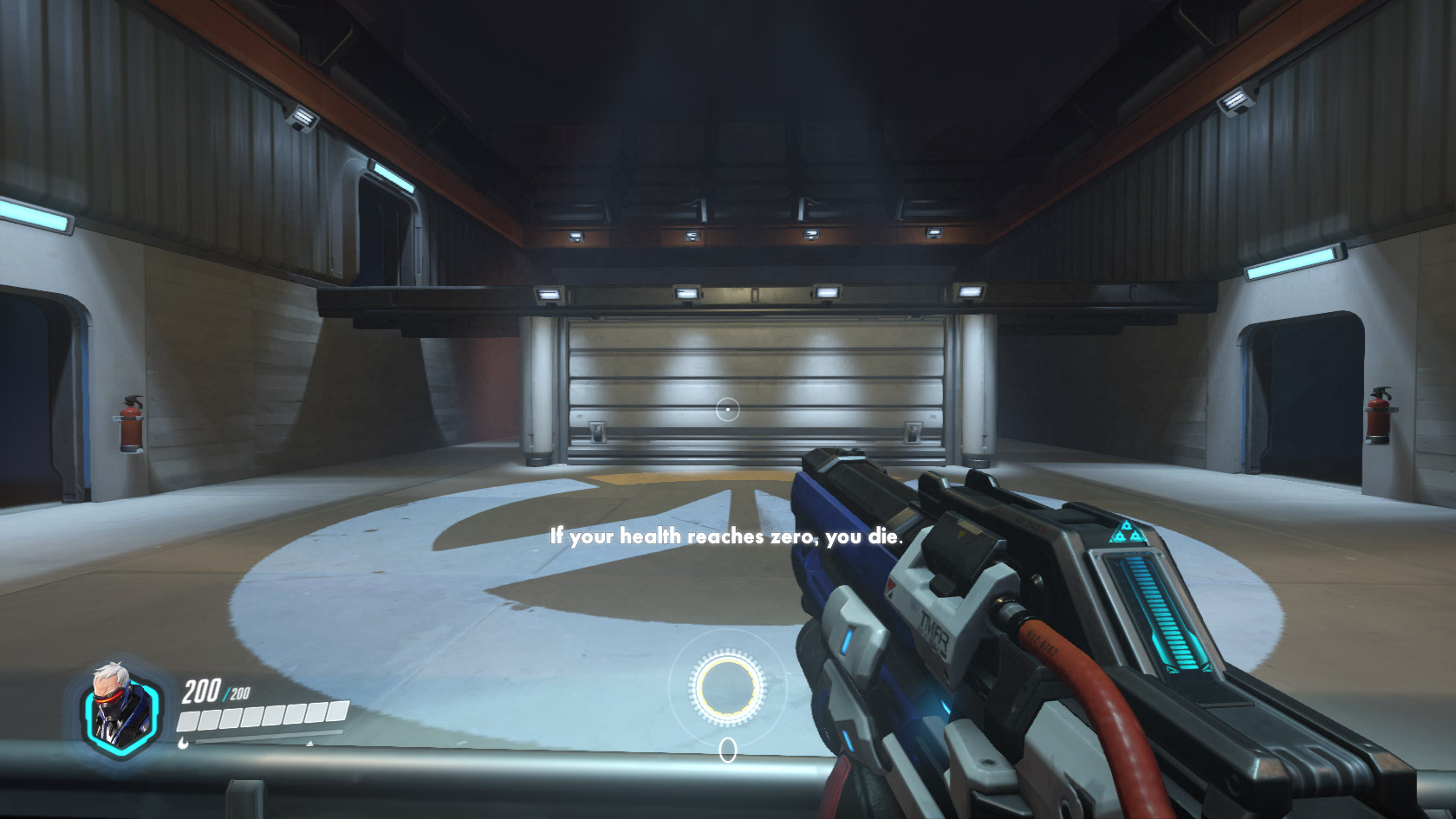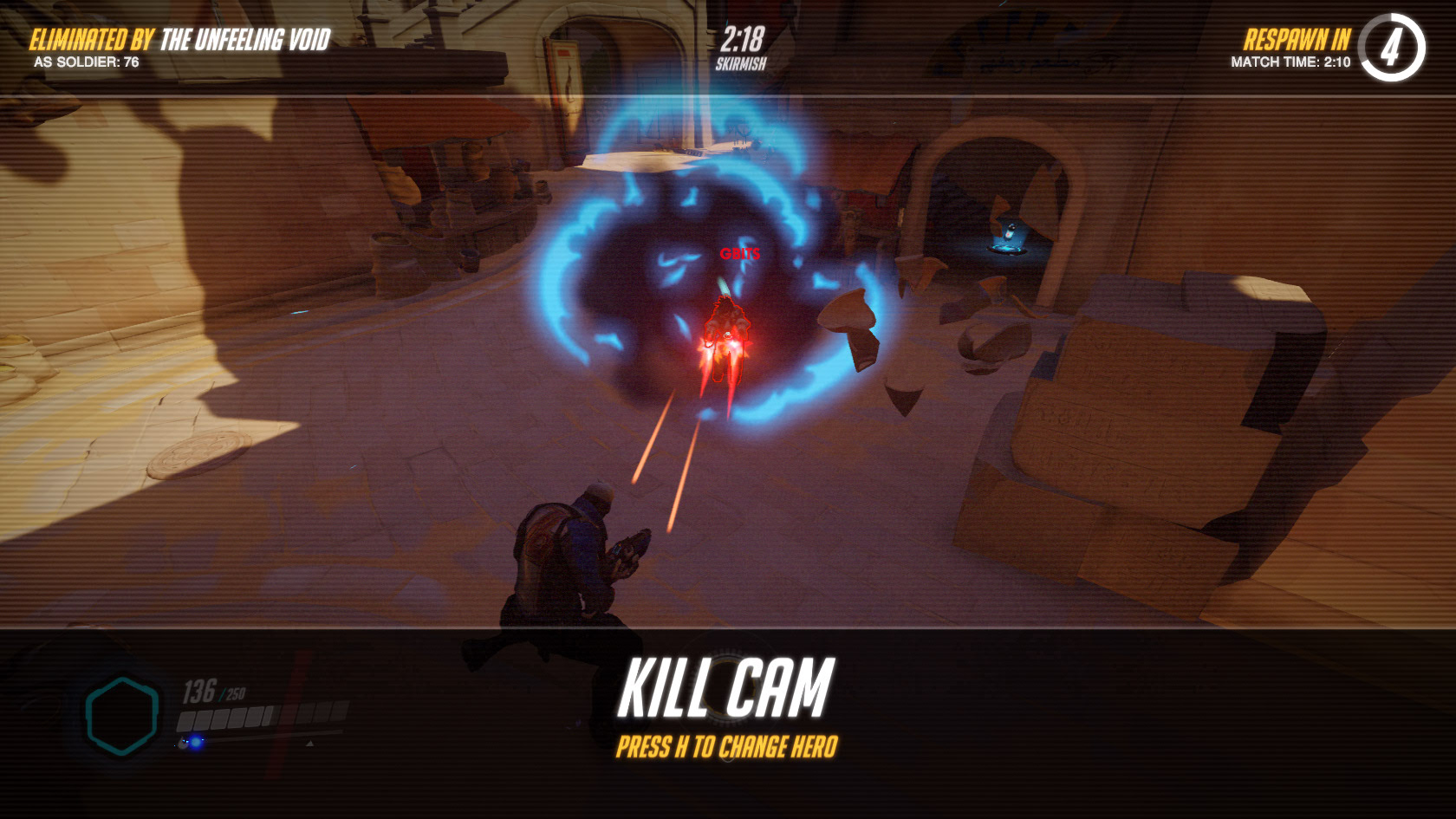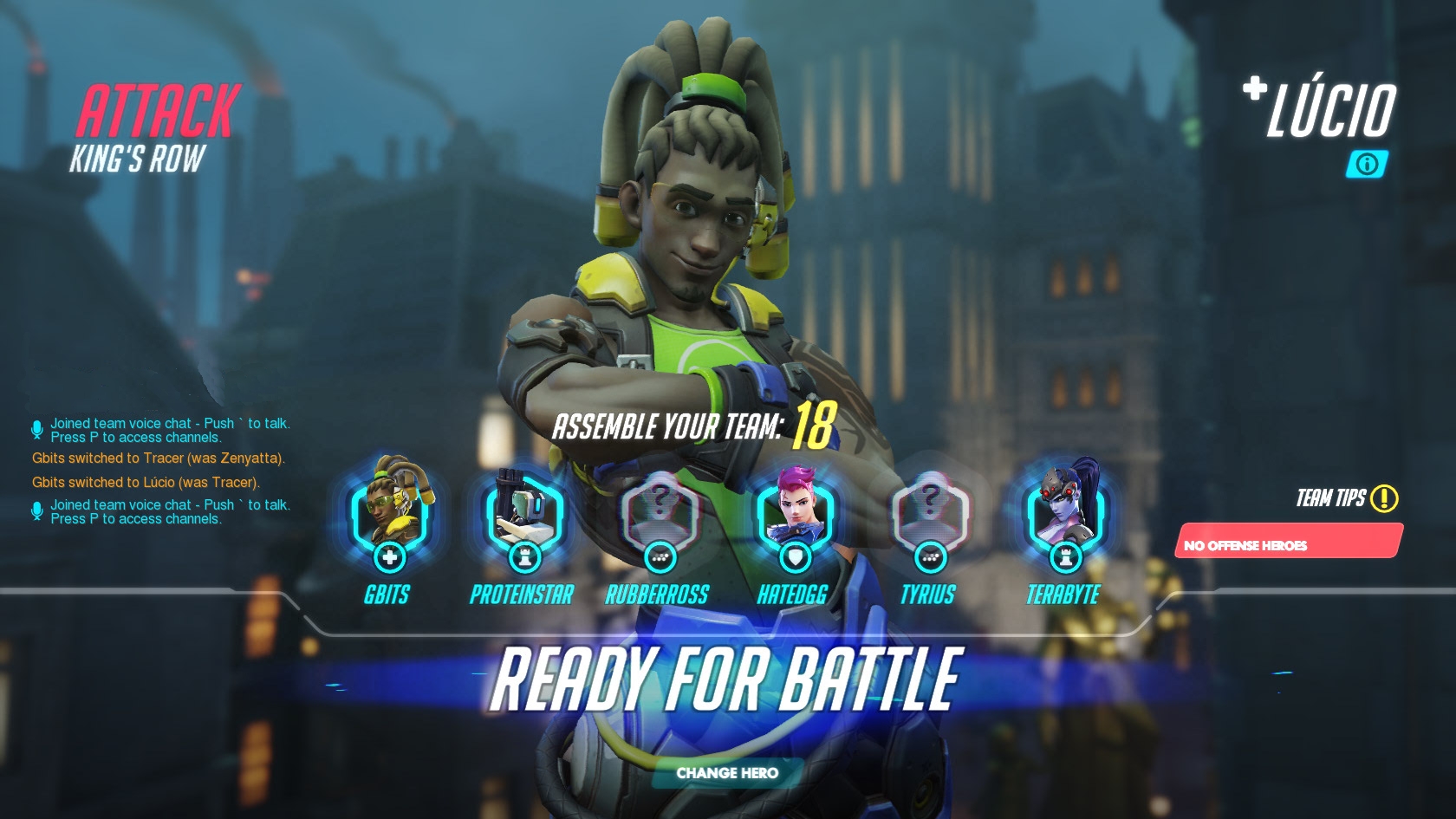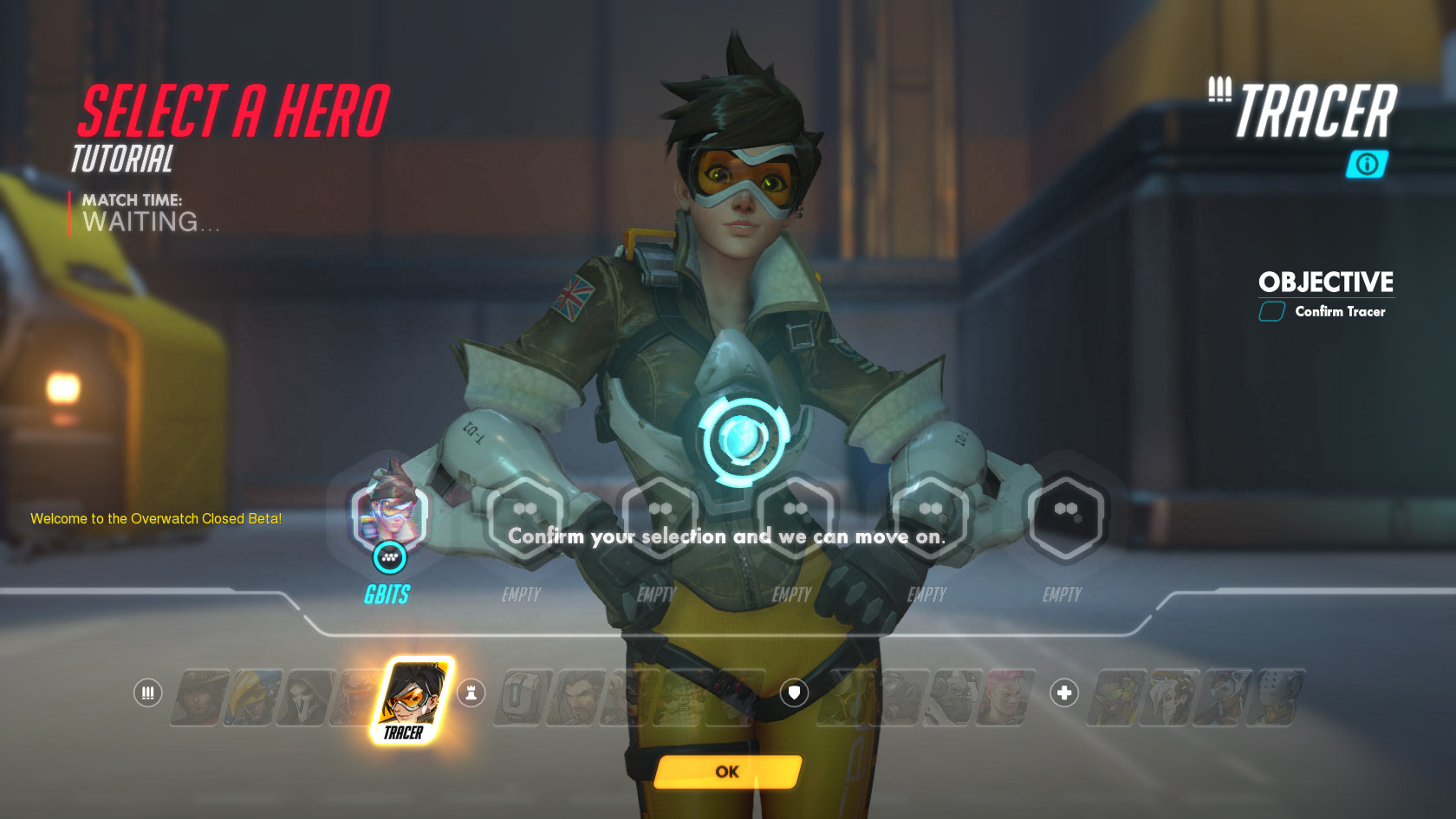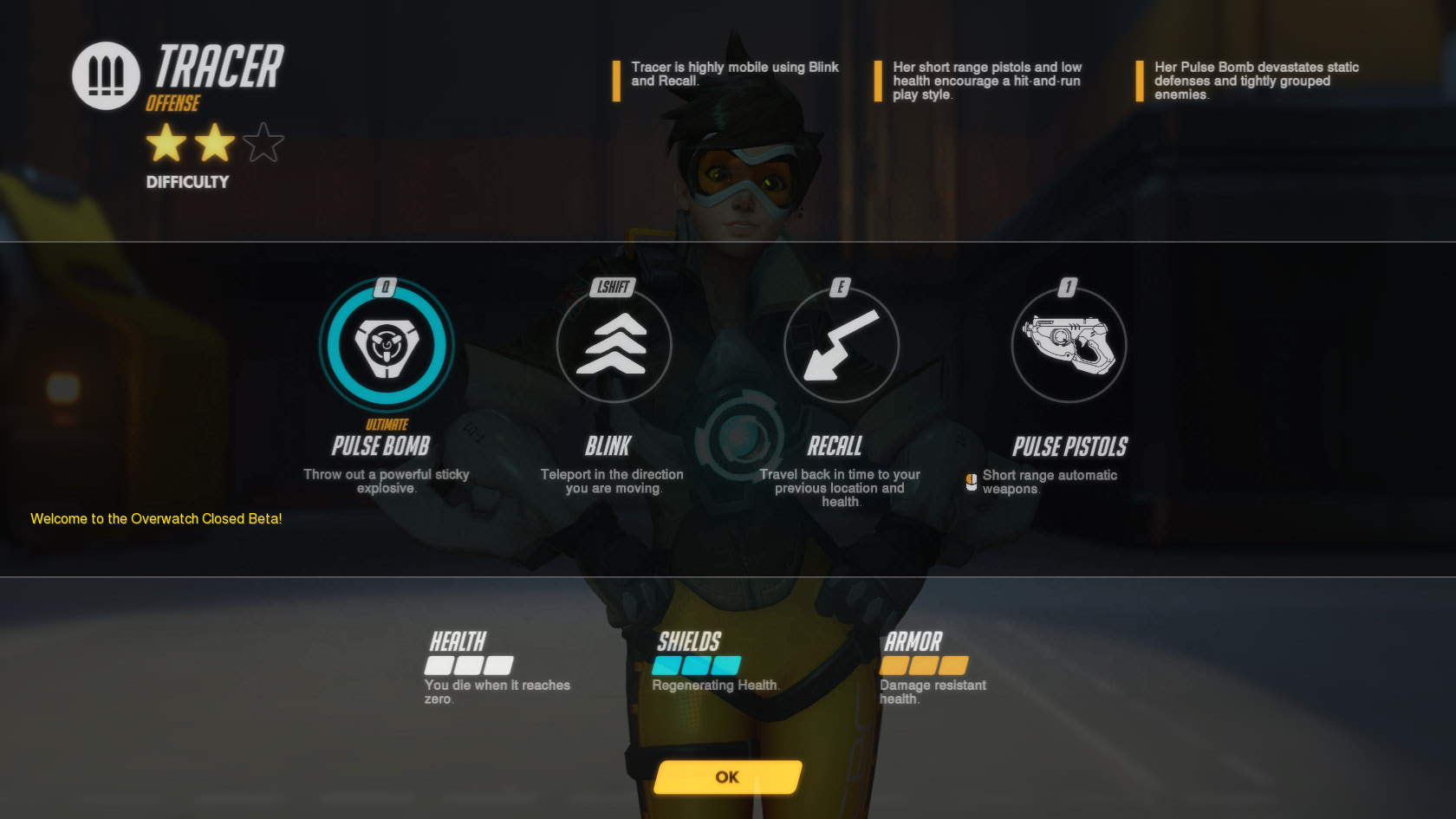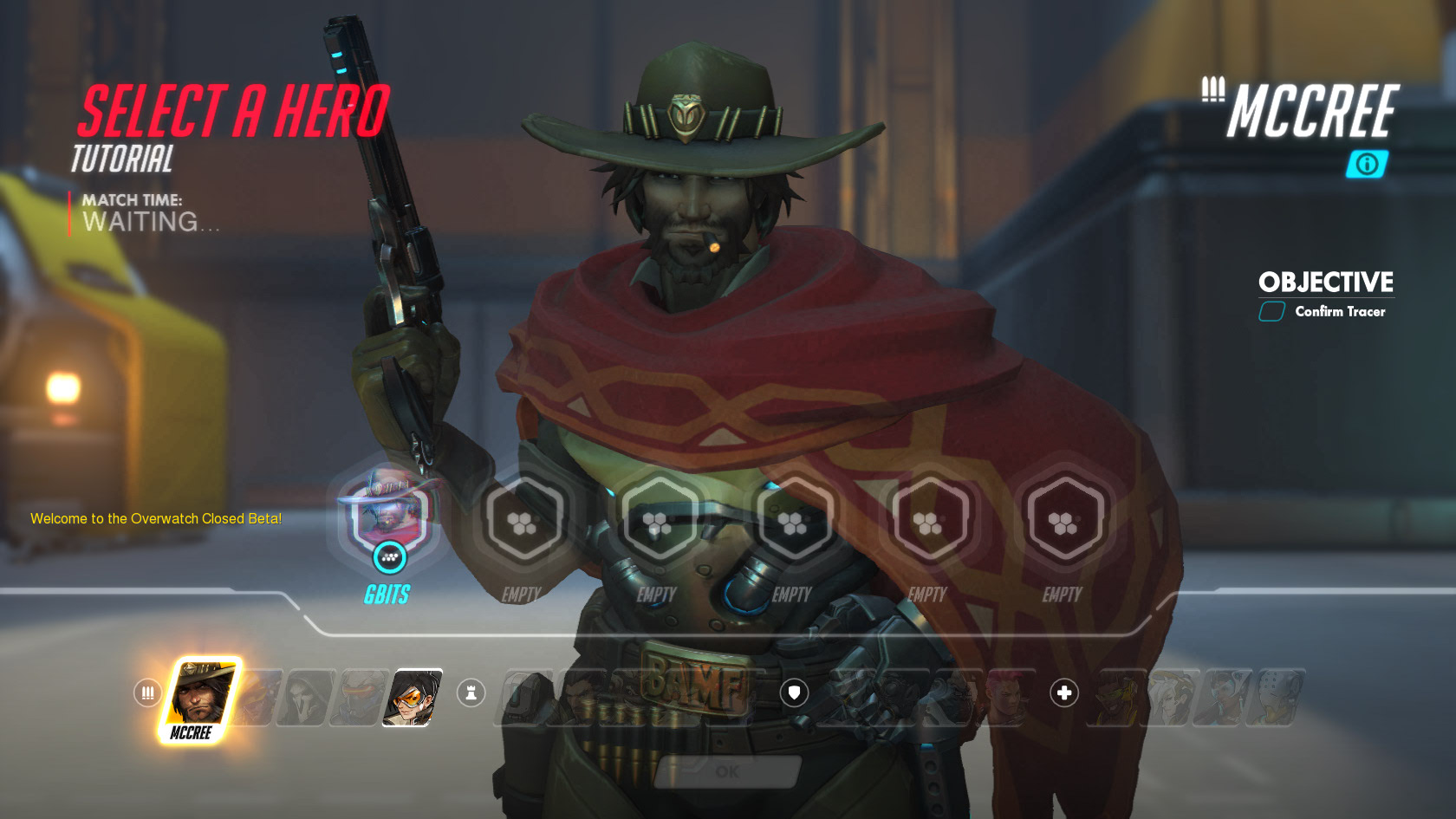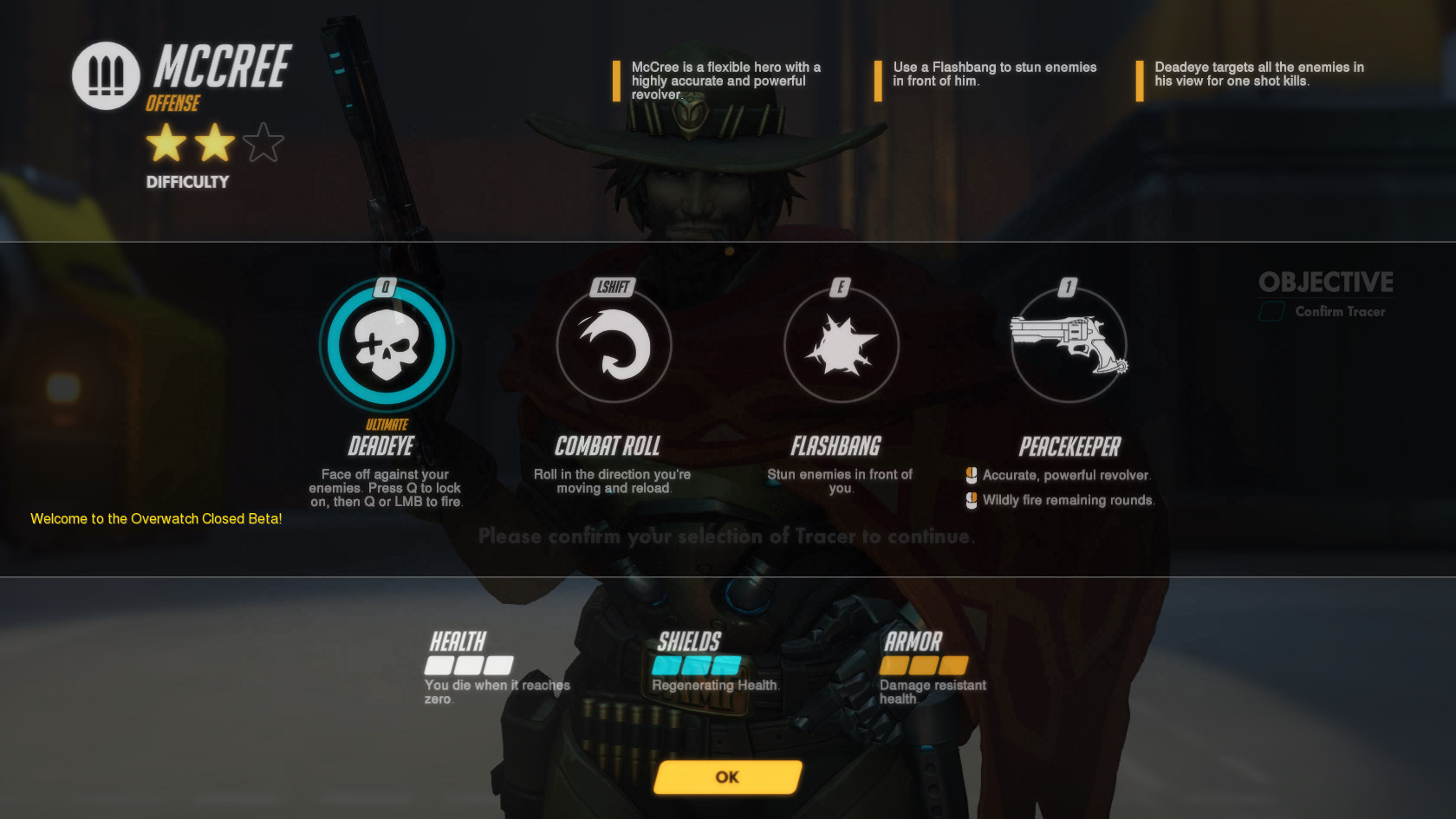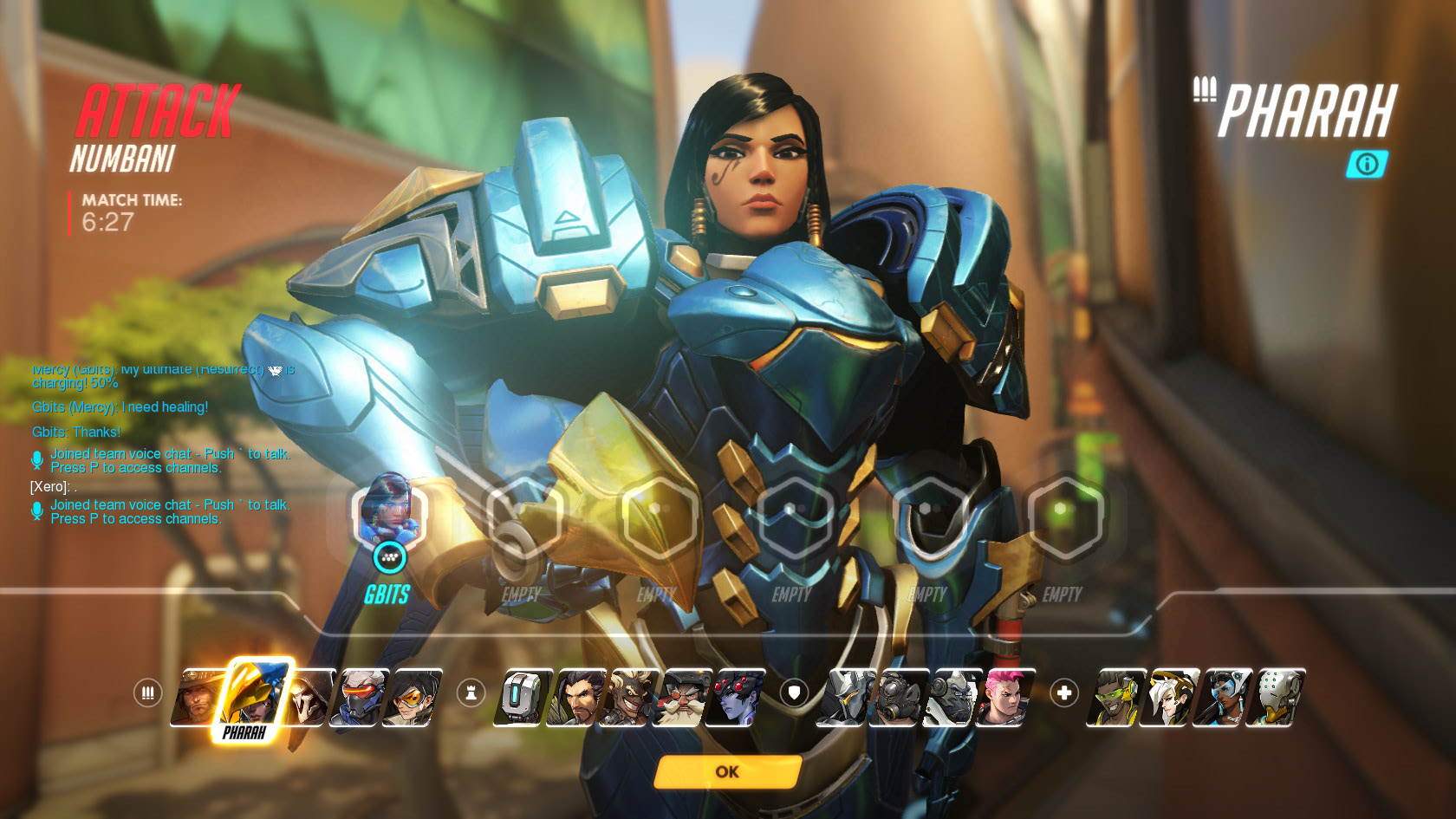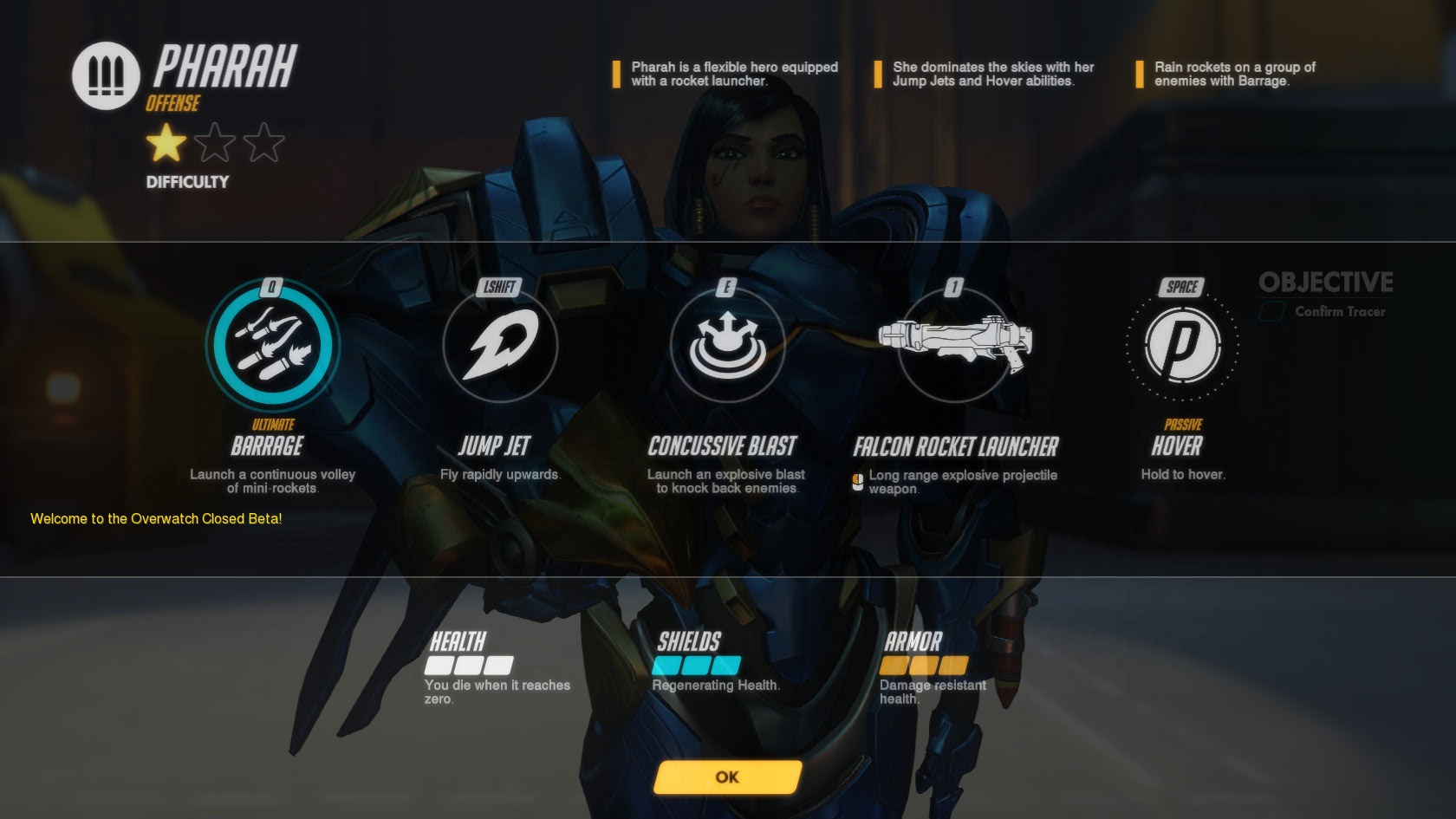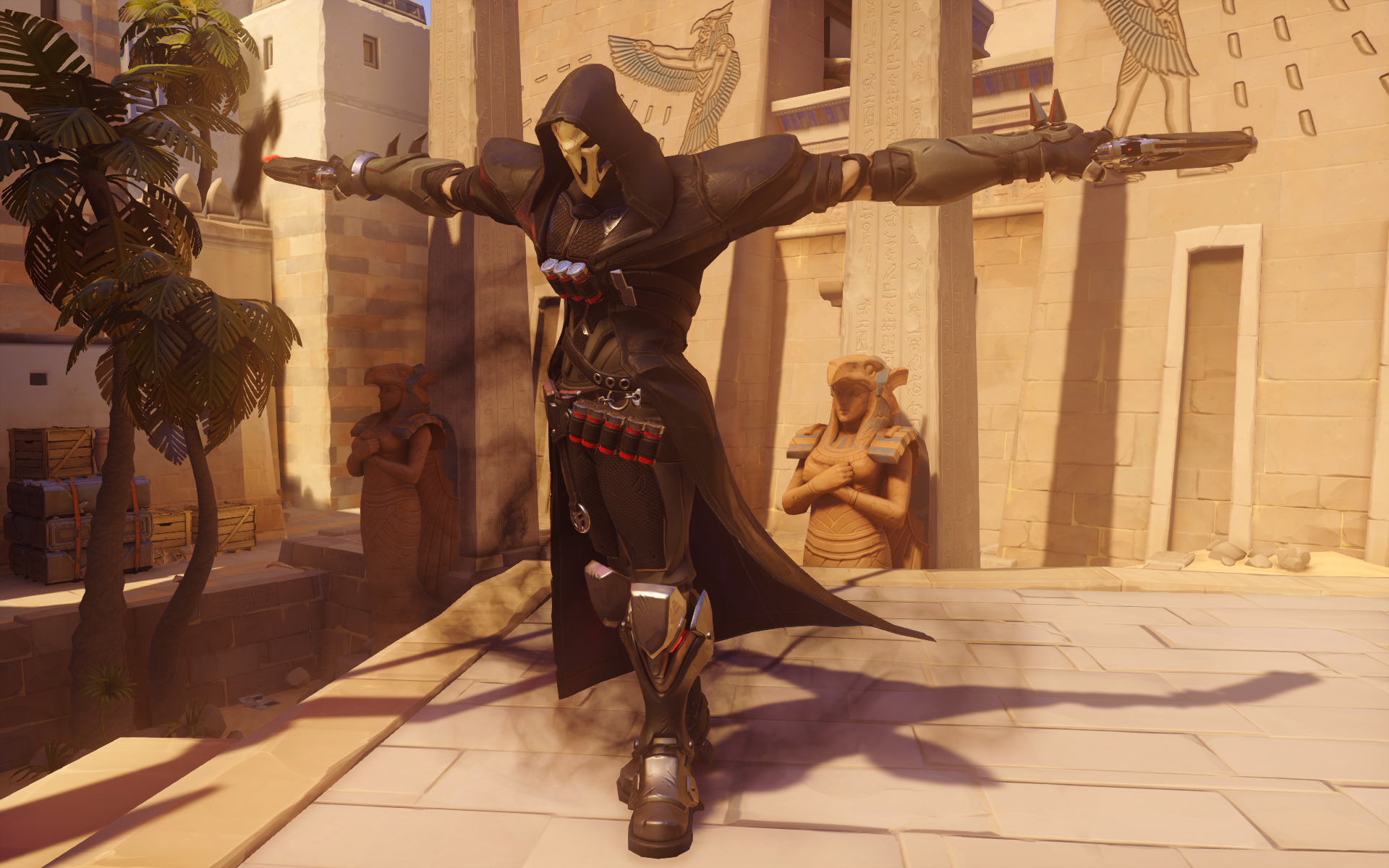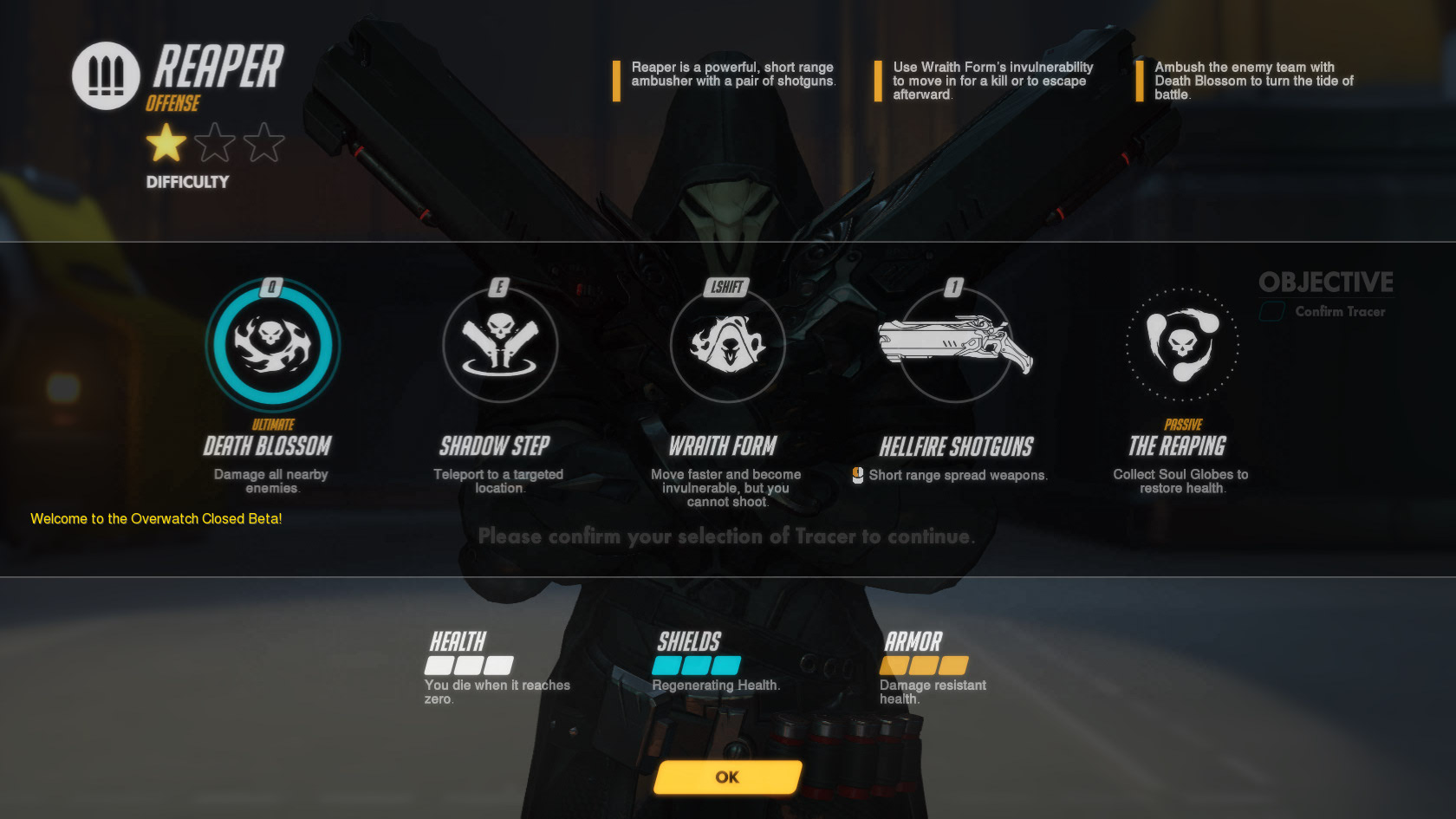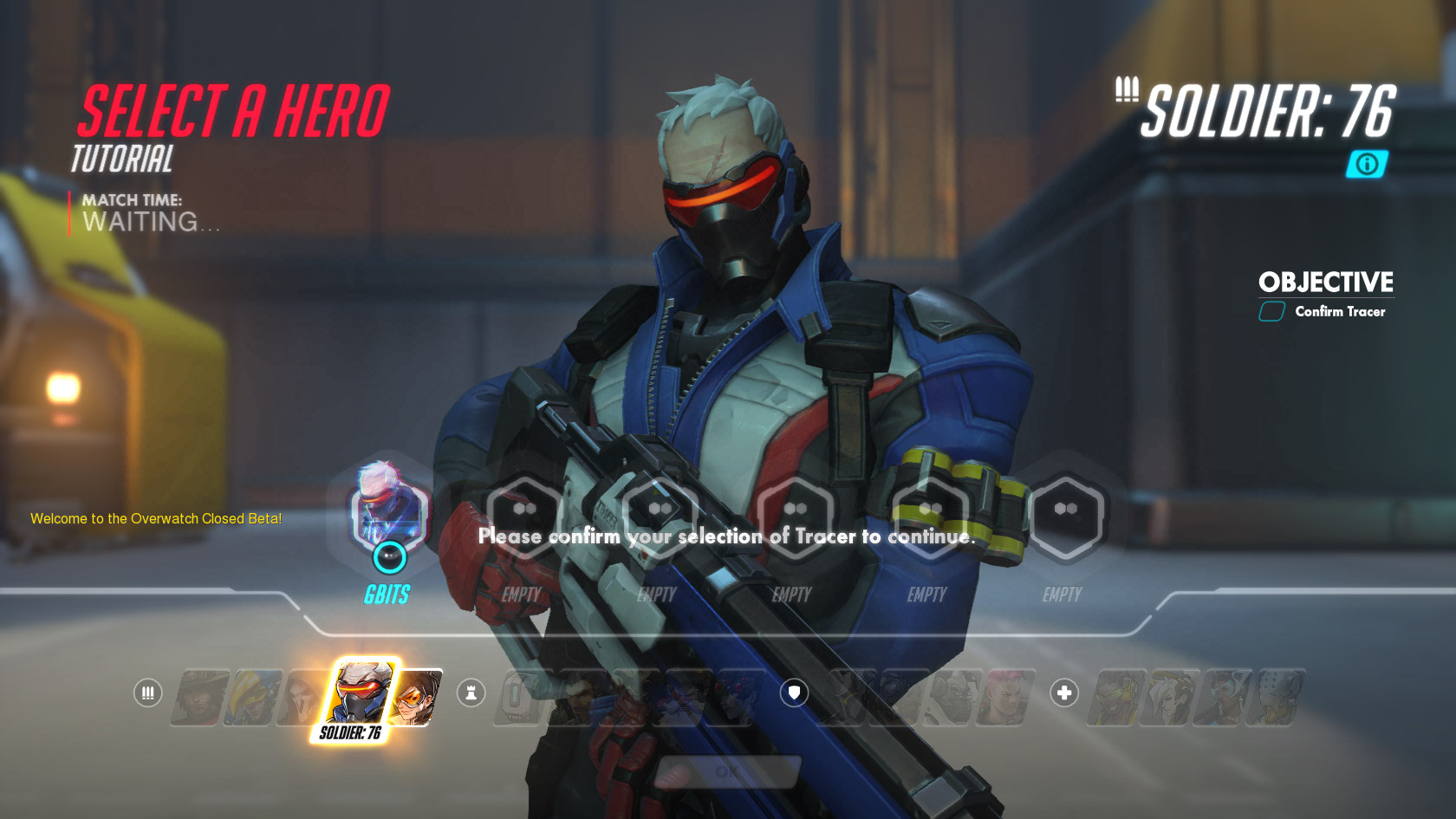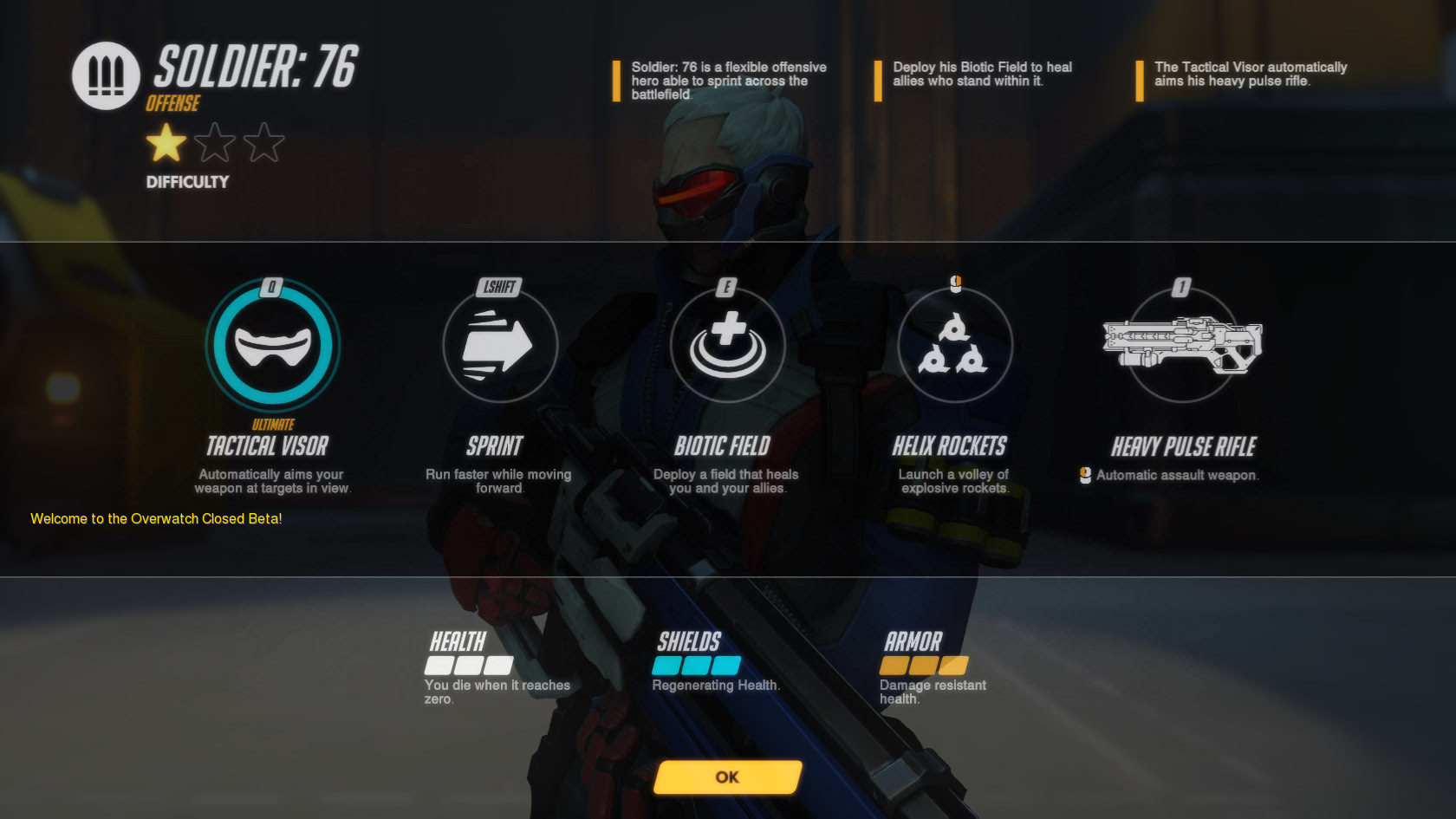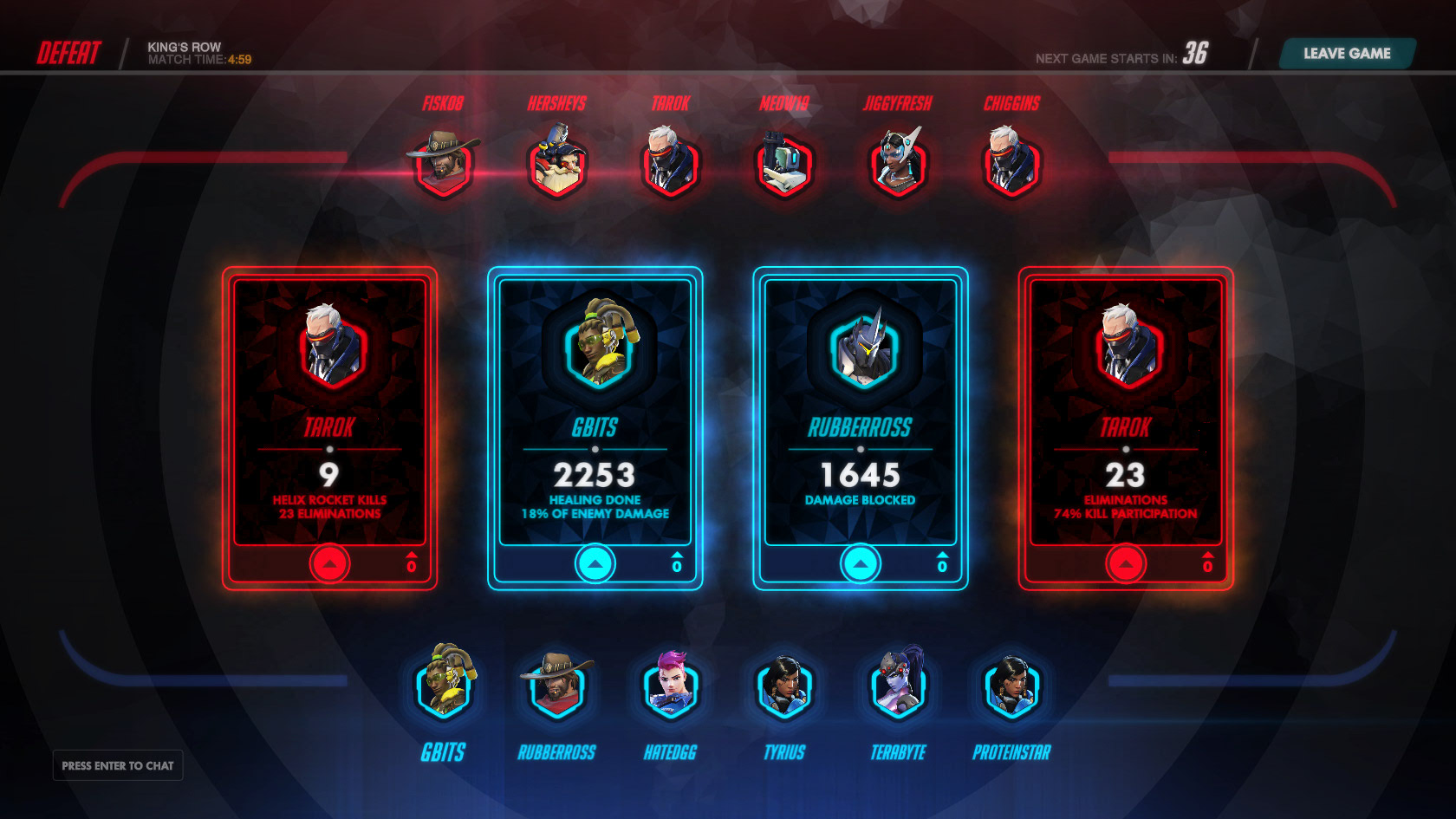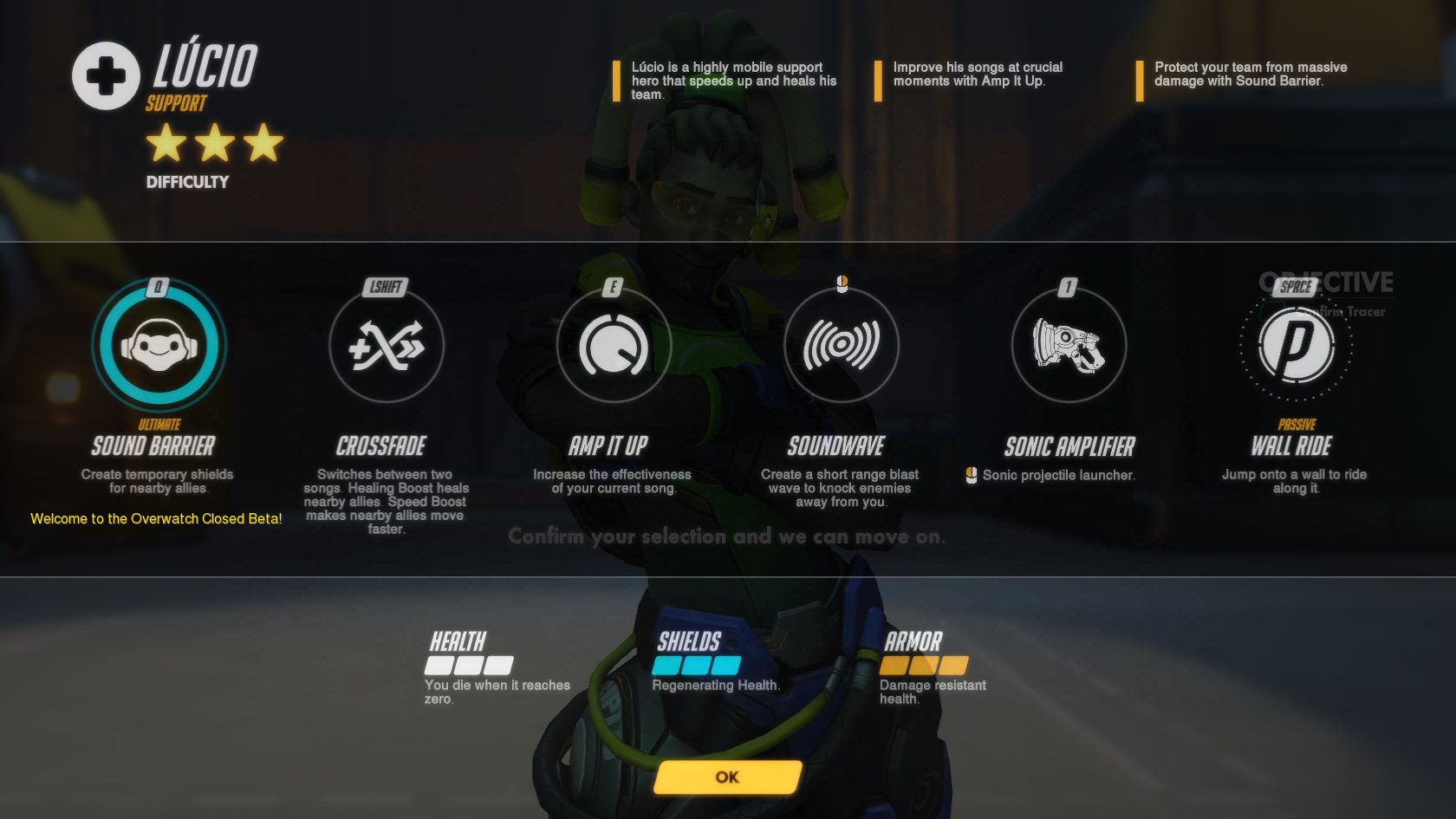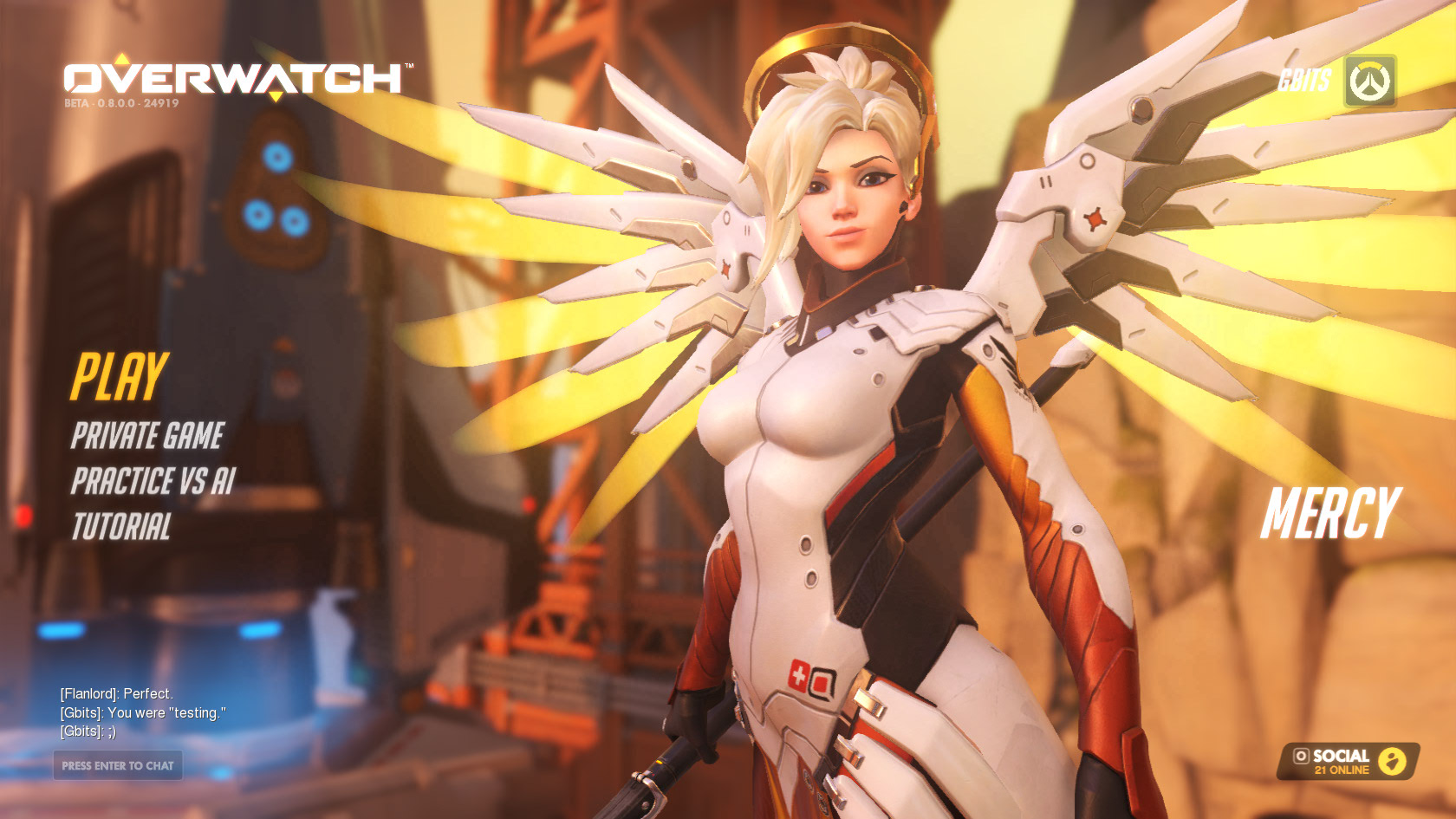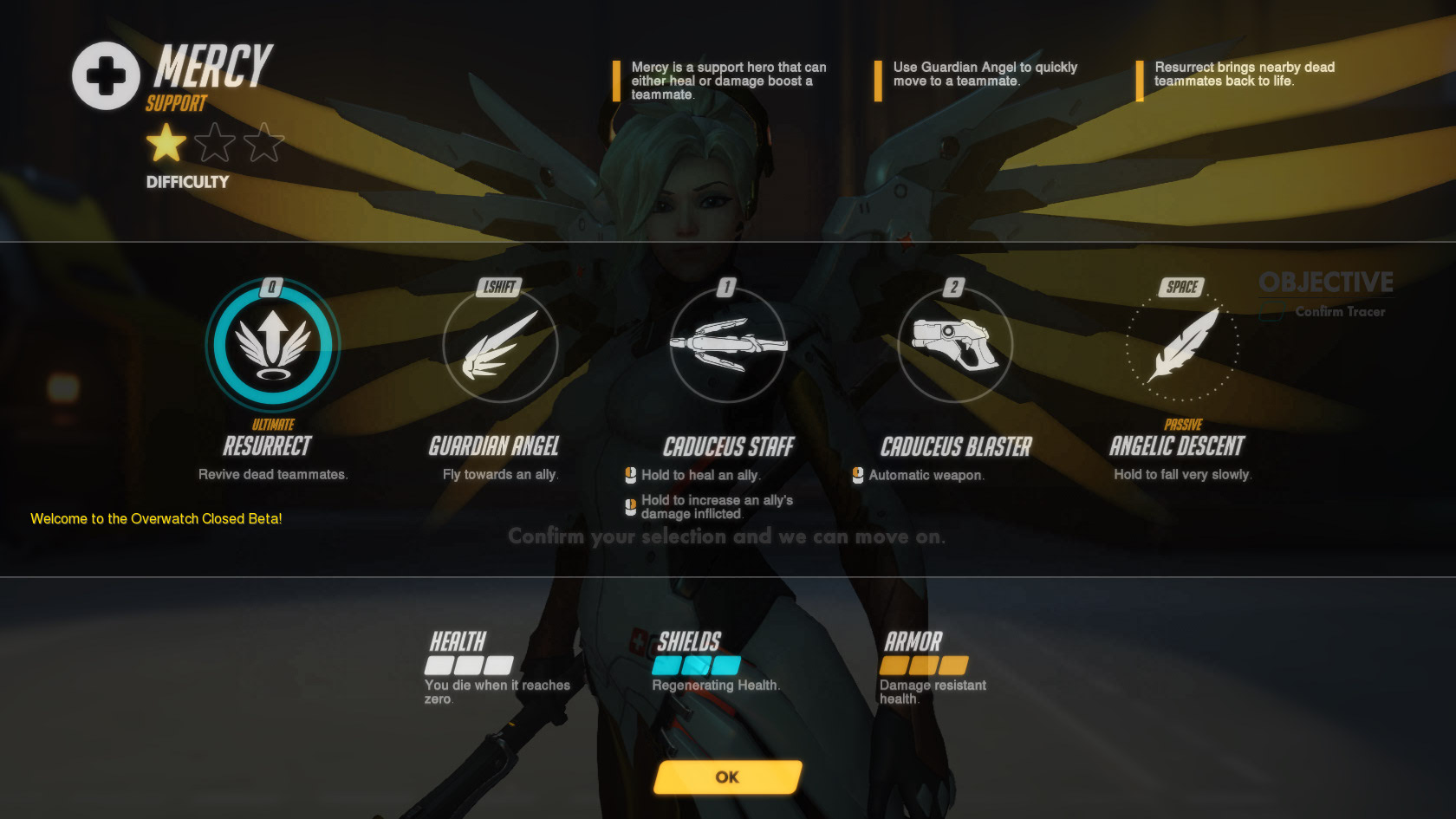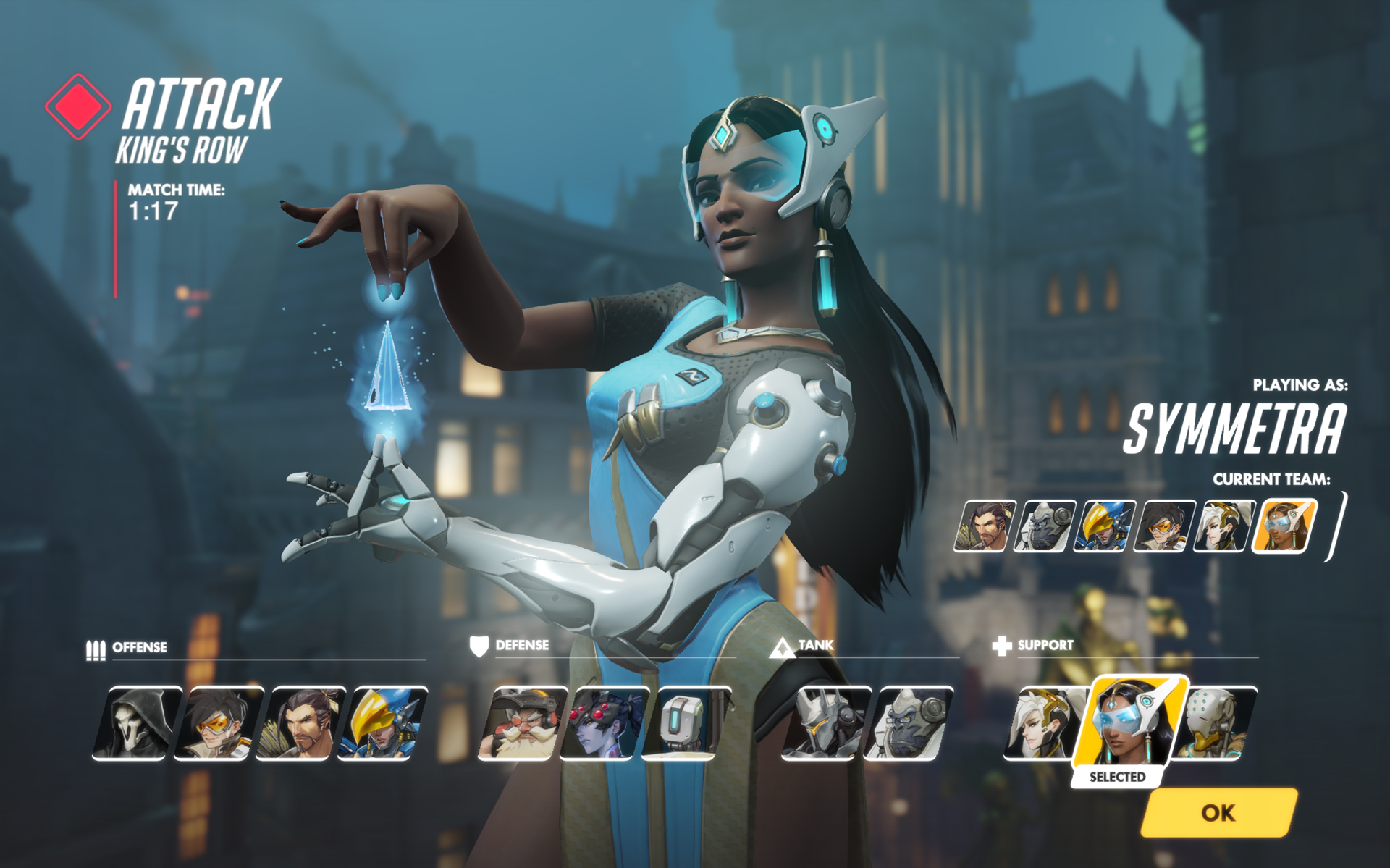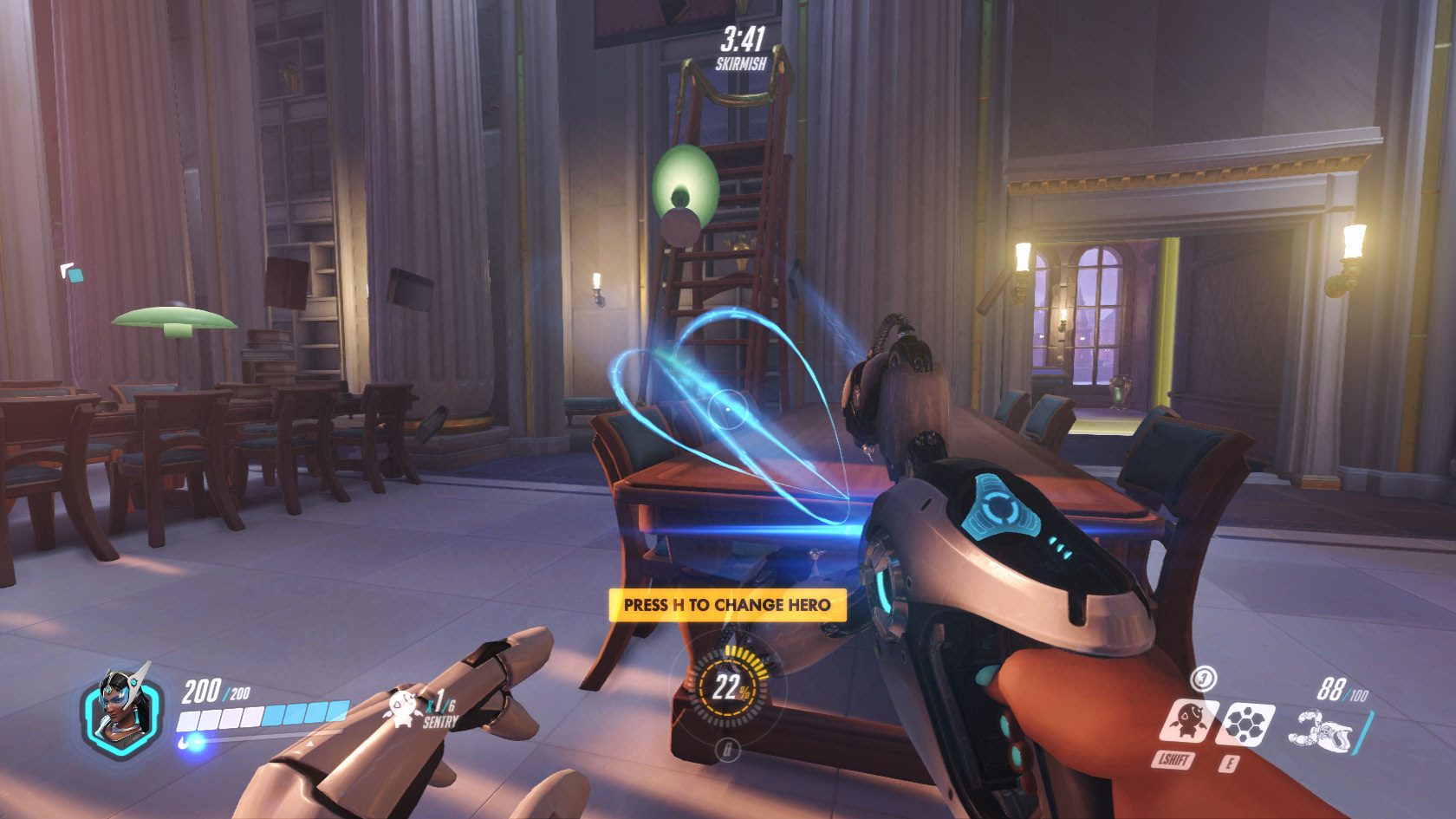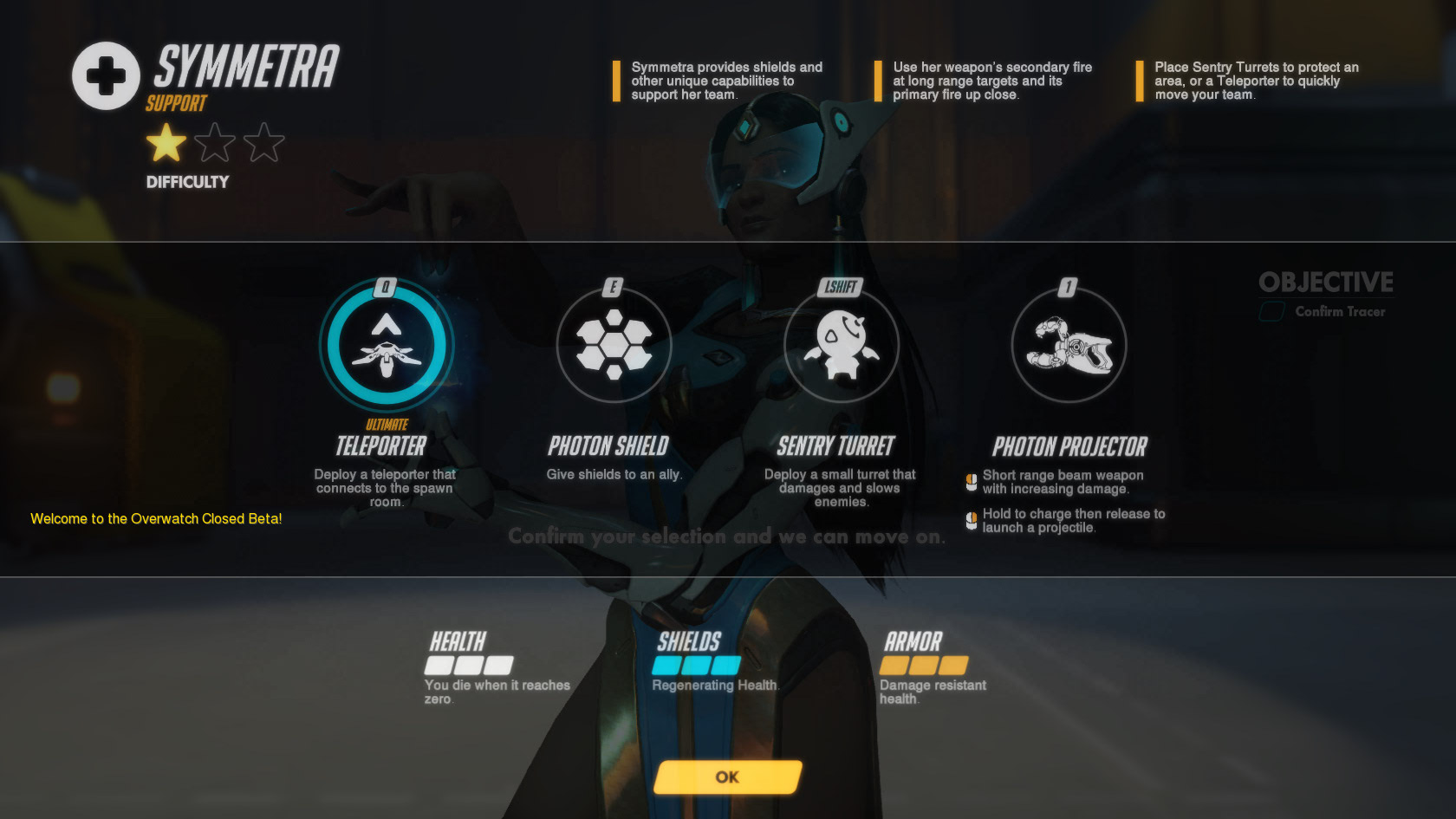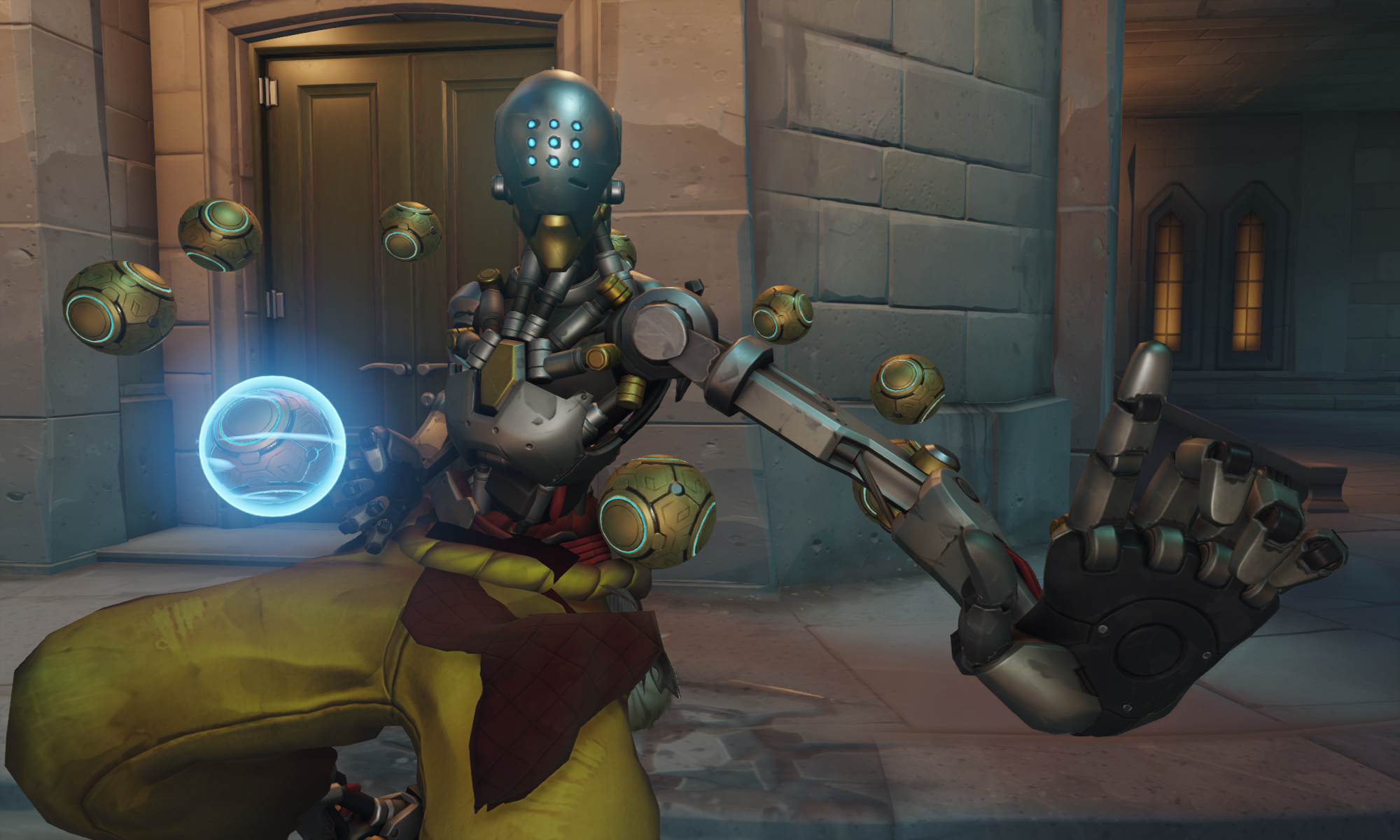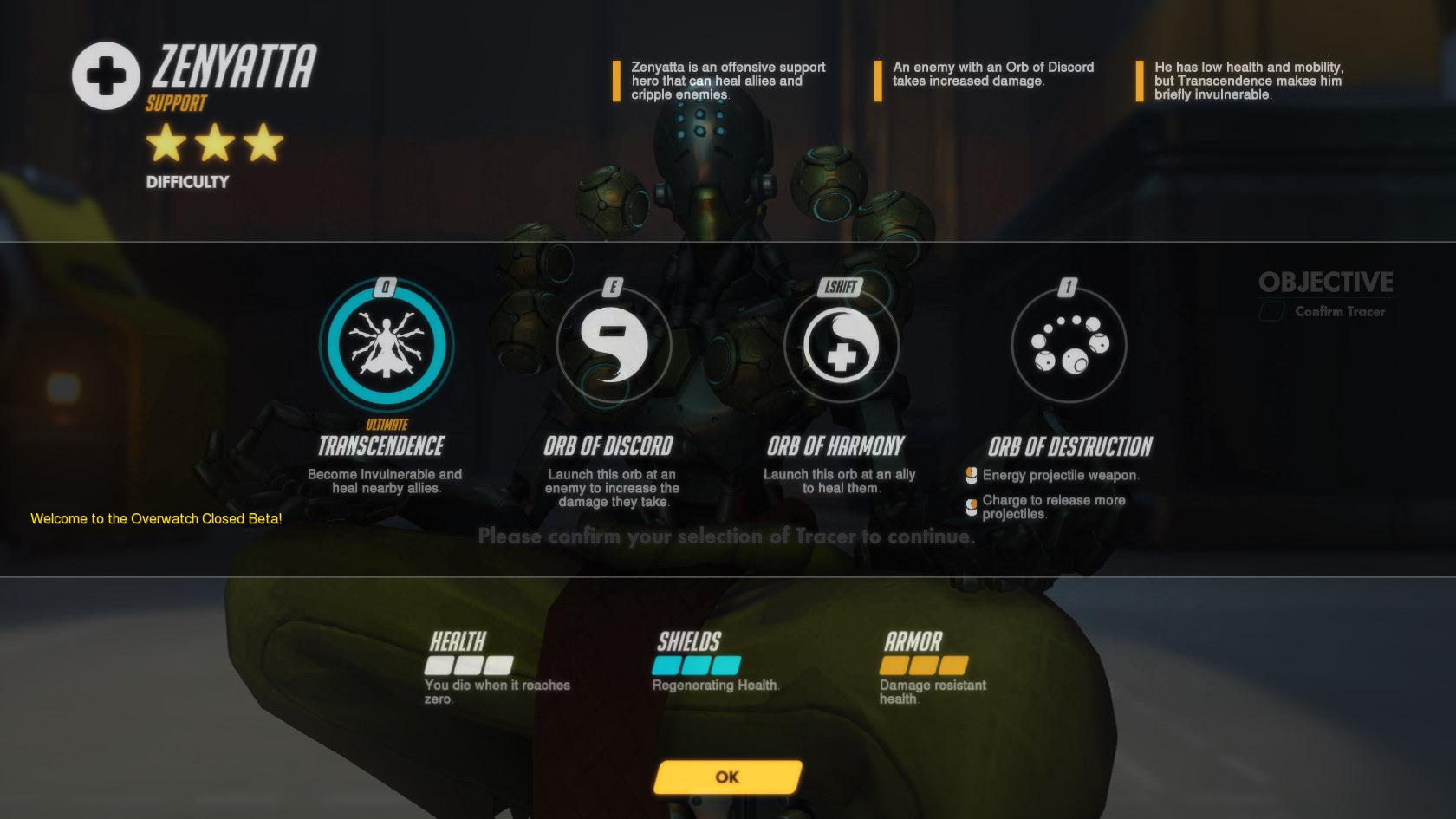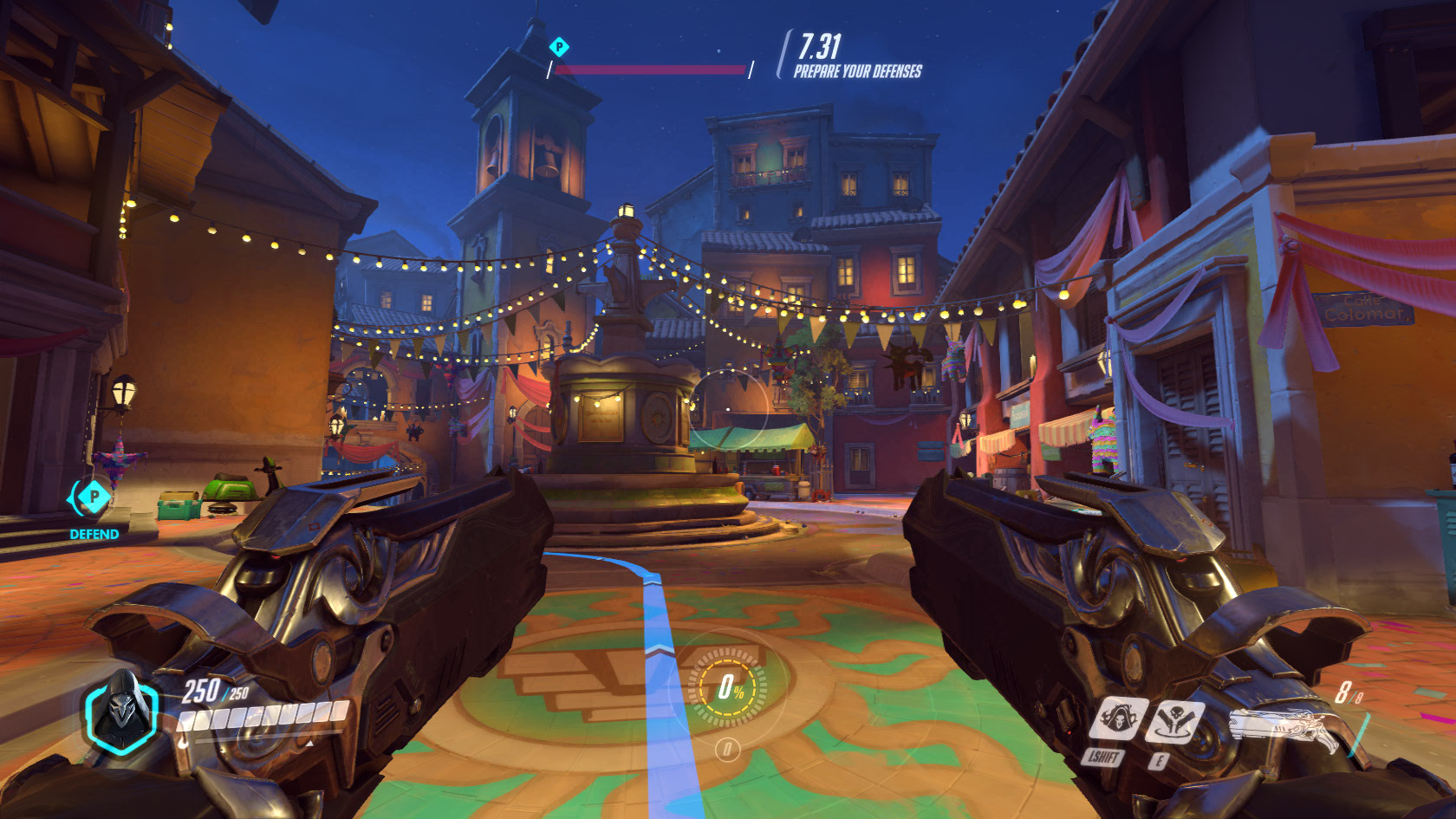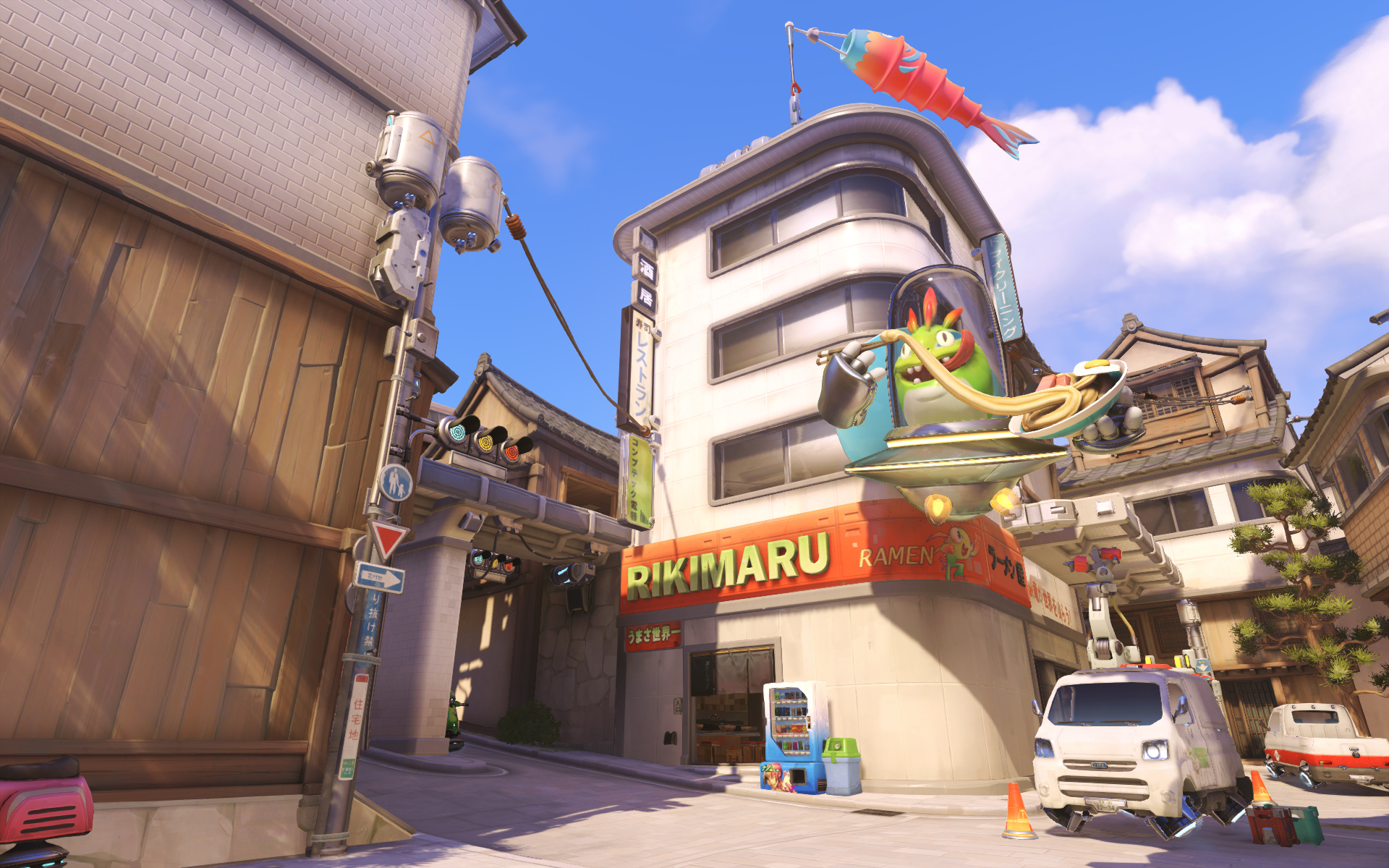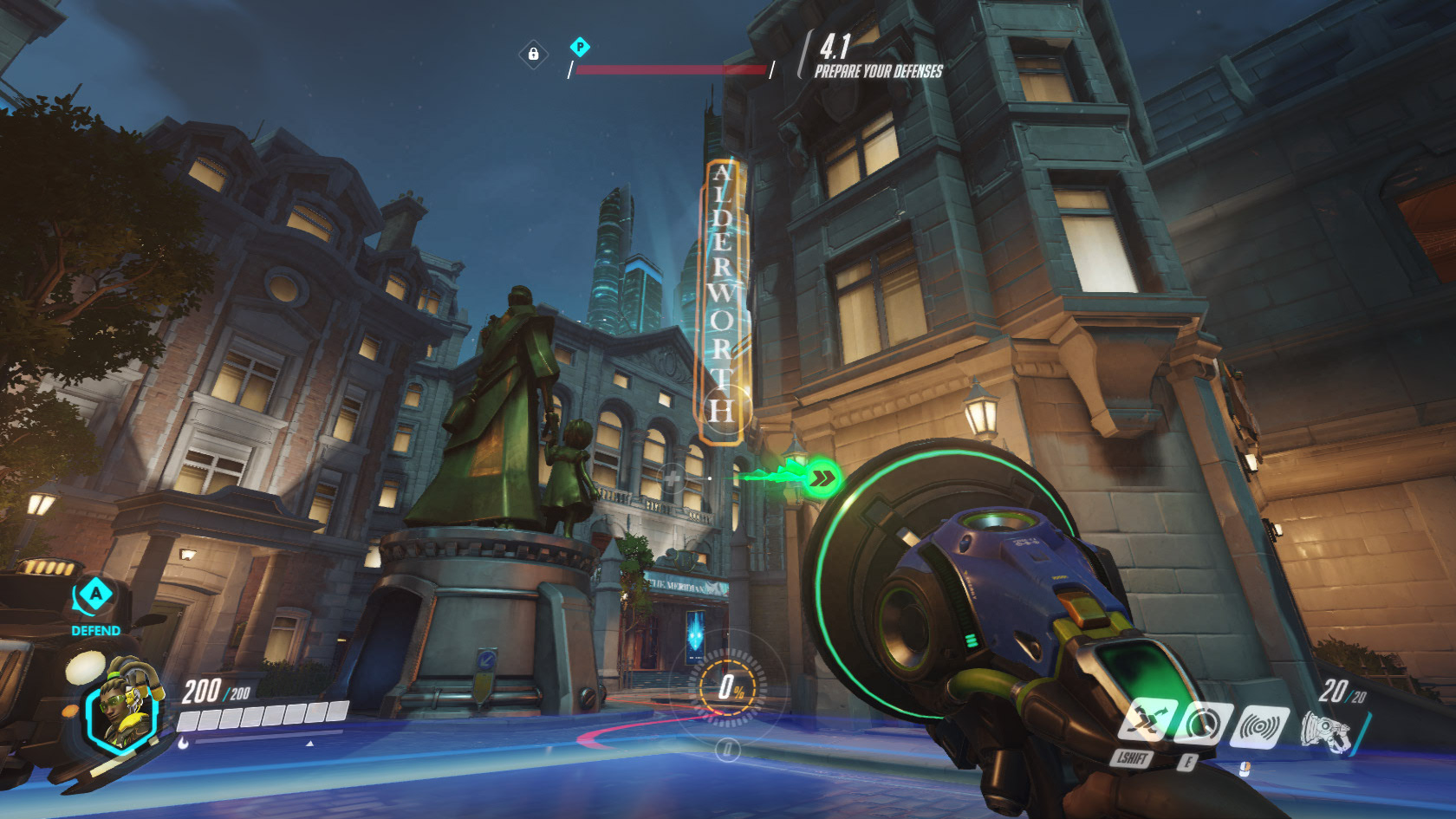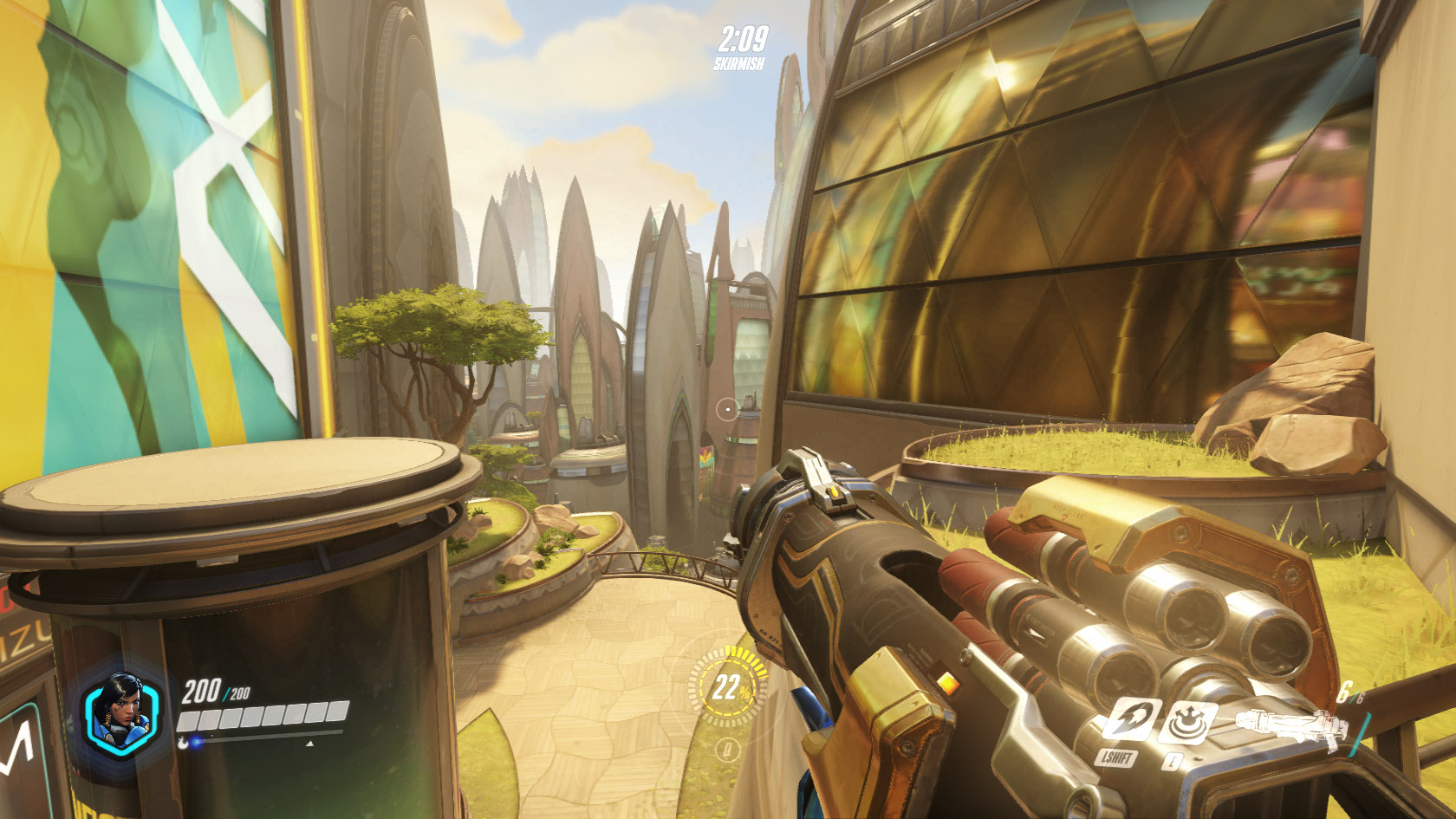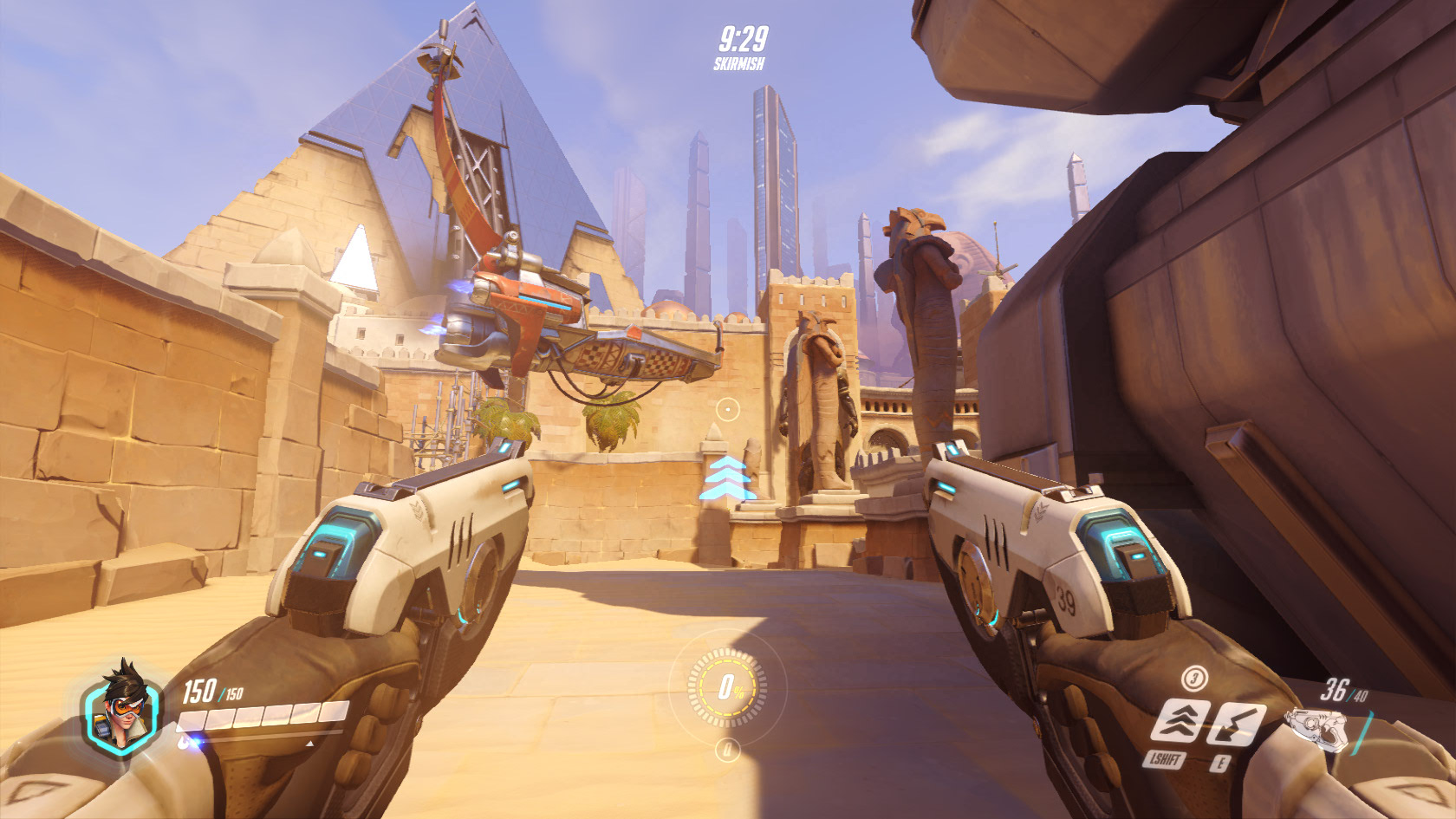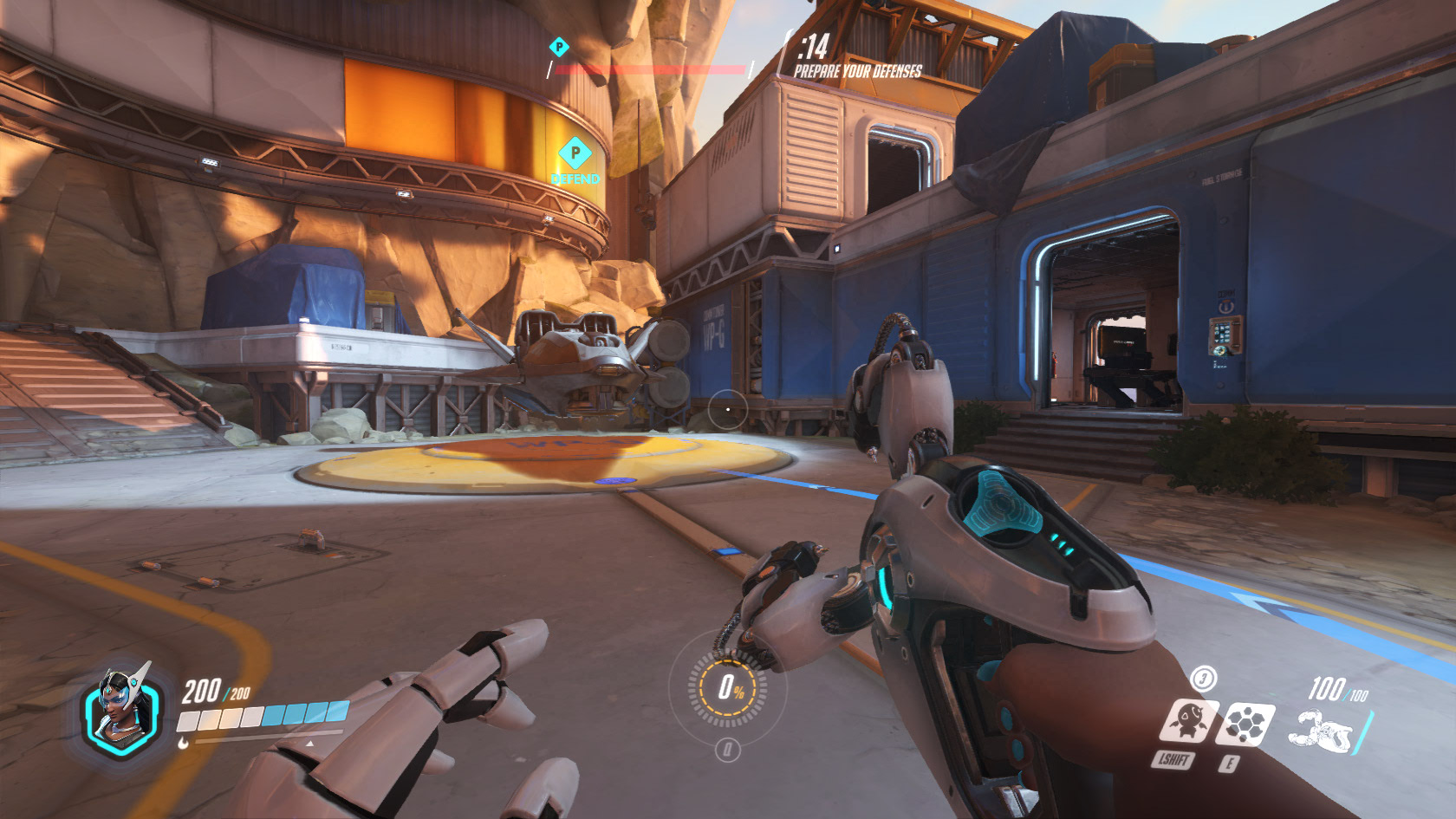Blizzard’s new first-person 6-on-6 team shooter Overwatch — the storied game company’s first new game franchise in more than 14 years — combines the colorful cartoon aesthetic of games like World of Warcraft with some seriously interesting massive online battle arena-style mechanics.
I played the beta test for a few hours to get the feel of some of the maps and two of the four classes of characters. Here, I’ll talk about the seven maps, the four support characters, and all five members of the offense available now in the beta. Up next, it’s defense — highly interesting group, that — and tanks.
First, some general impressions
Overwatch is fast-paced, with matches lasting as little as 10 minutes. You choose from 18 heroes — five offense, five defense, four tanks, and four support/healers. You can change your mind as to which character you’ll play any time you’re at the spawn point, even in the middle of a match.
An exceptionally basic tutorial (let’s learn how to use the WASD keys) suggests that Blizzard is hoping Overwatch will attract new players to team shooters in the same way that Heroes of the Storm appeals to players less invested in MOBAs and Hearthstone: Heroes of Warcraft has with collectible card-battlers.
Each Overwatch hero has a different, limited lineup of abilities: typically a primary/secondary attack, some kind of burst movement type, a special attack, and an ultimate ability unlocked by dealing, healing, or absorbing enough damage. In addition, characters move faster or slower than each other, and may have significant differences in firing speed, accuracy, damage, types of weapons and the like.
Headshots receive a considerable damage bonus, which makes the strategy of whom to choose even more interesting.
The weapons and abilities are part of the characters, and you can’t change these, at least for now. That means if you want to swap styles in midgame, you don’t swap equipment — you swap the entire character. Blizzard’s gameplay trailer does a nice job of showing off the ultimate abilities.
All the characters have their own personalities, such as their look and feel and moves or the amusing dialogue options they chirp in your ear as you play.
For now, there doesn’t appear to be a way to level up the characters you play, or change their power. Everyone is on the same field. In many ways, Overwatch feels more like a first-person MOBA than a traditional team shooter.
The game modes themselves are both familiar and simple, at least thus far — there’s a whole lot of point defense and capture. That makes the character mechanics what drives the game at this point. Fortunately, they already provide a lot of interesting ways to play.
The characters: offense
Tracer
We’re just going to get zippy sci-fi chick Tracer out of the way first, because I’ve been looking forward to playing her since the much-hyped BlizzCon Overwatch trailer last fall.
She is every bit as maneuverable as that video suggests. While she doesn’t pack much of a punch with her dual short-range pistols, she is the fastest and hardest to hit of the lot. Able to short-range teleport — a Warcraft mage-style blink move — every few seconds, she can also rewind her own time stream if she makes a mistake that leaves her at low health.
Tracer runs quickly as well, which makes her a hoot to move around with. At the moment, her damage feels just slightly undertuned; most characters are safe ignoring her, which is a shame.
Blizzard ranks the playing difficulty of each character in Overwatch; they give Tracer two of three stars.
McCree
McCree is a heavy shooter modeled after Western badass Clint Eastwood from “The Good, the Bad, and the Ugly.” He’s slower than Tracer, and his revolver has six painfully slow, horrifically long-to-reload shots, requiring accurate, patient players.
A special move does unload the rest of his bullets in a spray-and-pray attack, but it’s not that effective. This is the guy you want if you’re going to nail that headshot every time; he can sometimes one-hit kill if you catch someone at a weak moment. A flashbang ability can freeze an opponent like Tracer, who he would otherwise have no hope of catching.
You can also roll toward your opponent, and McCree’s ultimate move is to lock on to someone to shoot. He was my least favorite character to play so far, but he felt powerful enough; just not yet fun enough. Blizzard ranks his difficulty as two stars.
Pharah
Pharah is a heavily armored sci-fi shooter (think StarCraft’s Jim Raynor in drag). She’s slow as molasses, but a she’s heavy hitter. Equipped with a rocket launcher, a superfun power jump and the ability to hover, she is the floating butterfly to Tracer’s zippy bee.
She can knock back enemies from range, and her ultimate ability is a rocket barrage that is oh-so-fun to unleash while airborne.
Blizzard appropriately ranks her difficulty at one star.
Reaper
Reaper is the most stylish of the damage dealers, a skull-clad killer who specializes in dramatic entrances and exits. He does a fair amount of damage with dual pistols that individually fire, though not as much as heavy shooters like McCree or Pharah. His movement speed is fairly average.
He has a shadow step, a not-quite-instant teleport in a poof of black smoke to a location you choose in reasonably close range, and a wraith form that envelopes him in smoke, making him fast and invulnerable for a short time but unable to attack.
Reaper can collect soul globes to restore his health, but either I wasn’t good enough at doing damage with him (very possible) or the globes didn’t do enough healing, because they weren’t worth the effort.
His ultimate looks like a million bucks: a short-range 360-degree damage area of effect that makes him appear to be shooting in all directions at once. Blizzard rates his difficulty at one star.
Soldier 76
You’ll start the game as Soldier 76 during the tutorial. He looks a little like Cyclops from X-Men, and he offers a solid utility player. He’s slower than Tracer, but can sprint when needed. His abilities include a healing device he can throw down for an area of effect boost, thrown explosives, and an automatic particle weapon that does decent damage.
Soldier 76’s generic name identifies his role on the offense: He’s your opponent during A.I. practice rounds, and nothing about him seems particularly interesting or endearing.
I haven’t quite made up my mind about him yet, though. There’s something about Soldier 76 that suggests he’s the Halo pistol of Overwatch, the thing so plain-Jane its offensive capabilities might be overlooked by amateur players. Not surprisingly, he gets a single star for play difficulty.
The characters: support
A team shooter is usually defined by its damage dealers, but so far, Overwatch’s most interesting characters are in other classes. That doesn’t mean characters on offense won’t entice you: Blizzard went far to make all the characters feel unique.
Support/healers rapidly became one of my favorite groups for their varied abilities.
Lúcio
Lúcio is a funky, urban EverQuest-style bard with an FPS punch. He constantly sings to himself, either healing or boosting the speed of nearby allies (and himself.) You hear those tunes, so playing with Lúcio means you’re always dancing to your own beat, and you can swap modes at will.
His abilities include a boost to the effectiveness of the current song, a short-range sound-based knockback, a sonic projectile launcher and the ability to wall ride. His ultimate is an AE damage pulse of sound.
Lúcio’s continuous heal over time makes him difficult to kill, assuming you know how to duck, and he’s a ton of fun to play. The speed song makes him seriously mobile, he does a decent bit of damage, and he shows a lot of style.
I have a feeling Blizzard will tone down that imbalanced healing a bit, but for now, he’s absolutely my favorite character to play. Overwatch ranks his difficulty at three stars.
Mercy
The best character model in Overwatch right now is Mercy — oh, those wings. Unfortunately, playing her is less fun than looking at her.
A pure healer, Mercy has virtually no offense — she packs just one seriously underpowered pistol. Her wings can carry her toward a party member that needs healing. Her second gun heals a targeted party member or boosts their damage.
Mercy can slow fall off ledges (again, wings), which isn’t too much help considering she is both fragile and largely defenseless. Your ultimate move is to resurrect another party member, a fairly pointless maneuver until the end of the game. At the start of matches, respawn takes as little as a few seconds.
I wanted to love Mercy, but at this point, she needs some serious tuning up. Blizzard ranks her difficulty at a single star.
Symmetra
Symmetra could duke it out with Tracer for the title of squishiest character in the game at the moment. She’s a sci-fi style healer that specializes in shields and sentry turrets. Her photon shield is relatively powerful for allies, but it does nothing for herself, so she makes an easy kill most of the time.
Symmetra can set several small sentry turrets that annoy enemies and stick around until killed. Her beam weapon is incredibly short range and not all that accurate, but it looks terrific (and is fun to use to knock things over unrelated to combat.)
Her ultimate ability is a freestanding portal for group members back to the spawn point; useful, but yawn. Her difficulty earns one star.
Zenyatta
Blizzard ranks android yoga practitioner Zenyatta as a three-star difficulty character, and of all the heroes in the game at the moment, he earns it the most. His abilities are all active and targeted.
He specializes in thrown orbs, which he appears to juggle and levitate when not throwing them at you. Some orbs increase damage by his targeted teammates. Some heal them. Some blow up in enemies’ faces.
The tricky part here is that everything requires aim; you don’t have a way to target a teammate and stay locked on, for example. And Zenyatta’s only self heal is part of his ultimate ability, which makes him invulnerable and heals everyone in range.
His damage projectiles offer some fun, especially if you let them charge up and then fire them off machine-gun-style at an unsuspecting enemy’s head.
The maps
Seven maps are live at the moment, and each of them offers a slightly different challenge. None are particularly large, befitting a game with 12 players on the board. All have a relatively bright, cartoony look.
Outlines during the games show you where enemies and allies are standing nearby, and if you listen carefully, you’ll hear the distinctive footprints of your comrades and opponents in perfect 3D position, telling you where you’ll see them next.
Dorado
Dorado’s gorgeous take on nighttime Spanish architecture offers something beautiful to see at every turn. It’s worth taking in a skirmish just to look around. The map isn’t any more detailed than the others, but the textures combined with the moody night lighting make it fun to sneak around its many tight corners.
This primarily outdoor map offers tons of cover, places to hide and turtle, and strategic spots to leap out and melee an enemy.
Hanamura
Hanamura offers a Japanese-style setting in full cherry blossom mode. The buildings are an interesting mix of modern Tokyo and ancient shrine. Most of the gameplay is in the long straightaways offered by the streets, but there are some small buildings to get caught up in and a few ledges to snipe from.
King’s Row
King’s Row is a British nighttime cityscape. The play areas are primarily outdoor, with city squares and building lobbies offering plenty of vehicles and corners to duck around. Long line of sight can be difficult to find here, favoring short-range fighters who won’t be as easily picked off.
Numbani
This Middle Eastern-inspired, futuristic desert city offers an open daytime cityscape to play in. In addition to plenty of open landscape, it offers a number of vertical levels and tons of balconies, making it great for snipers and characters with vertical climbing/jumping abilities.
Temple of Anubis
This is another multilevel, primarily outdoor map, but without the big vistas. Egyptian-style Anubis has plenty of overpasses and stairs, making multilevel combat the focus. I found Anubis one of the most fun maps to play because of the variety of settings and the way it frequently forced combat in a more-intimate way, rather like King’s Row.
Volskaya Industries
A factory setting with huge open spaces, Volskaya is the ideal setting for a major group melee brawl. Wide stairs and hallways and plenty of big rooms offer players the chance to meet up as groups or take each other down with major abilities. Volskaya makes shielding and defensive capabilities a must; it’s a fairly terrible map for squishy characters.
Watchpoint: Gibraltar
Gibraltar is a futuristic port with plenty of tight, twisty hallways and corridors. It rewards player skill; while characters can find plenty of places to hide, it’s also possible to get bottlenecked and destroyed if you’re not careful. Those annoying Symmetra turrets are great here, as are Zenyatta’s orbs.
Next, I’ll cover all the Overwatch tank and defense characters currently available in the beta.
VentureBeat's mission is to be a digital town square for technical decision-makers to gain knowledge about transformative enterprise technology and transact. Learn More

